Pope Francis: 'I am ready to meet Putin in Moscow'
By Vatican News
“I have a torn ligament; I will have an operation with infiltrations and we will see... I've been like this for a long time; I can't walk. There was a time when popes used to go with the gestatorial chair. It requires a little humiliation.”
This is how Pope Francis justified the fact that he could not get up to greet Luciano Fontana and the deputy director Fiorenza Sarzanini of the Corriere della Sera , whom he received at the Casa Santa Marta for an interview that the newspaper published on Tuesday.
The conversation centred on the subject of the war in Ukraine, for which the Pope has appealed since it broke out on 24 February, and for which so far he has made many attempts at mediation, starting with the telephone call to President Zelensky, the visit to the Russian embassy to the Holy See, and above all the willingness to go to Moscow to meet President Putin.
"I asked Cardinal Parolin, after twenty days of war, to send a message to Putin to say that I was willing to go to Moscow.”
Of course, affirmed the Pope, the Russian President must first offer a window for dates. “We have not yet received an answer, and we are still insisting, even if I fear that Putin cannot and does not want to have this meeting at this time. But how can this brutality not be stopped? Twenty-five years ago we experienced the same thing with Rwanda.”

Wars to test weapons
The Pope's comments also reflected on the reasons for war and on the "trade" in arms, which for him remains a "scandal" opposed by few people.
Pope Francis spoke of "an anger facilitated" perhaps, by "NATO's barking at Russia's door" that has led the Kremlin to "react badly and unleash the conflict".
“I don't know how to answer - I'm too far away - the question of whether it is right to supply the Ukrainians," he reasoned. "The clear thing is that weapons are being tested there. The Russians now know that tanks are of little use and are thinking of other things. This is why wars are waged: to test the weapons we have produced. Few people are fighting this trade, but more should be done."
The Pope also cited the halting in Genoa of a convoy carrying arms to Yemen, which the port authorities chose "two or three years ago" to stop.
Visit to Moscow first
No trip to Kyiv is planned at the moment, but first, the Pope would prefer to visit Moscow.
Reviewing the efforts made or to be made to stop the escalation of violence, the Pope clarified: "I am not going to Kyiv for now; I feel that I must not go. First I must go to Moscow. First I must meet Putin. But I am also a priest, what can I do? I do what I can. If Putin would only open the door...".
Again the Pope looked to Moscow for the possibility of working together with Patriarch Kirill of the Russian Orthodox Church.
He cited the 40-minute conversation via Zoom on 15 March last and the "justifications" for the war cited by Kirill, and returned to the missed appointment in June in Jerusalem.
“I listened," said Pope Francis in the interview with Corriere della Sera , "and I told him: I completely fail to understand this. Brother, we are not state clerics; we cannot use the language of politics, but that of Jesus. We are pastors of the same holy people of God. That is why we must seek ways of peace, stop the fire of arms. The Patriarch cannot become Putin's altar boy. I had a meeting scheduled with him in Jerusalem on 14 June. It would have been our second face-to-face meeting, nothing to do with the war. But now even he agrees: 'Let's wait; it could be an ambiguous signal'."
Wars for international interests
The Pope's gaze widened again to speak of the rights of peoples in a world at war, a "third world war" so often evoked and feared.
He was not raising an "alarm", he clarified, but offering an "ascertainment of things: Syria, Yemen, Iraq, in Africa one war after another. There are international interests in every bit of it. You cannot think that a free state can make war on another free state. In Ukraine, it seems that it was others who created the conflict. The only thing that is blamed on the Ukrainians is that they reacted in the Donbas, but we are talking about ten years ago. That argument is old. Of course, they are a proud people.”
Not enough desire for peace
In this regard, the Pope returned to the Good Friday Way of the Cross at the Colosseum and to the requests from the Ukrainian side that led to the reading of the meditation at the thirteenth station, led by a Russian and a Ukrainian woman being scrapped.
Pope Francis explained the conversation he had with Cardinal Krajewski, who for Easter was in Kyiv for the third time sent by the Pope since the beginning of the conflict.
"I called Krajewski who was there and he told me: ‘Stop, don't read the prayer. They are right even if we cannot fully understand.’ So they remained silent. They are susceptible; they feel defeated or enslaved because they paid so much in the Second World War. So many men died; they are a martyred people. But we are also careful about what may happen now in Transnistria.”
However, he said, 9 May could be the end of it all. Referring to his audience with Viktor Orbán, prime minister of Hungary, on 21 April at the Vatican, the Pope said he learned that "the Russians have a plan".
"So, one would also understand the celerity of the escalation of these days. Because now it's not just the Donbas, it's Crimea, it's Odessa, it's taking away the Black Sea port from Ukraine, it's everything. I am pessimistic, but we must make every possible gesture to stop the war.”
Italian Church looking for an innovative Cardinal
In his conversation with Corriere della Sera , the Pope turned his gaze to Italy, to politics from Napolitano to Mattarella, and to the "very good" relationship with Mario Draghi, calling him "a direct and simple person".
He also expressed his "respect" for Emma Bonino, even if he did not share her ideas, "but she knows Africa better than anyone here."
Then he spoke about the reforms in the Vatican and the Italian Church, which is waiting for the new president of the Bishops' Conference.
"One of the things I'm trying to do to renew the Italian Church is not to change the bishops too much. Cardinal Gantin said that the bishop is the groom of the Church, every bishop is the groom of the Church for life. When there is a habit it is good. That's why I try to appoint priests, as happened in Genoa, in Turin, in Calabria. I believe that this is the renewal of the Italian Church."
As for the person whom he will choose to head the bishops at the next CEI meeting, he clarified: "I'm trying to find one who wants to make a good change. I prefer it to be a Cardinal, someone who is authoritative and who has the possibility of choosing the secretary; someone of whom I can say, 'I want to work with this person'."
Thank you for reading our article. You can keep up-to-date by subscribing to our daily newsletter. Just click here

More upcoming events:
The Pope's Agenda

Listen to our podcasts

Subscribe to our newsletters
To get the latest news

Papal audiences

Daily readings

Saint of the day

- International
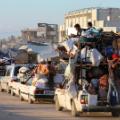
Israel-Hamas war
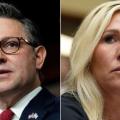
House Speaker ouster vote
June 27, 2023 - Russia-Ukraine news
By Kathleen Magramo , Sana Noor Haq, Ed Upright, Adrienne Vogt , Aditi Sangal , Mike Hayes, Maureen Chowdhury and Tori B. Powell , CNN
The Pope's peace envoy will visit Moscow this week
From John Allen in Rome
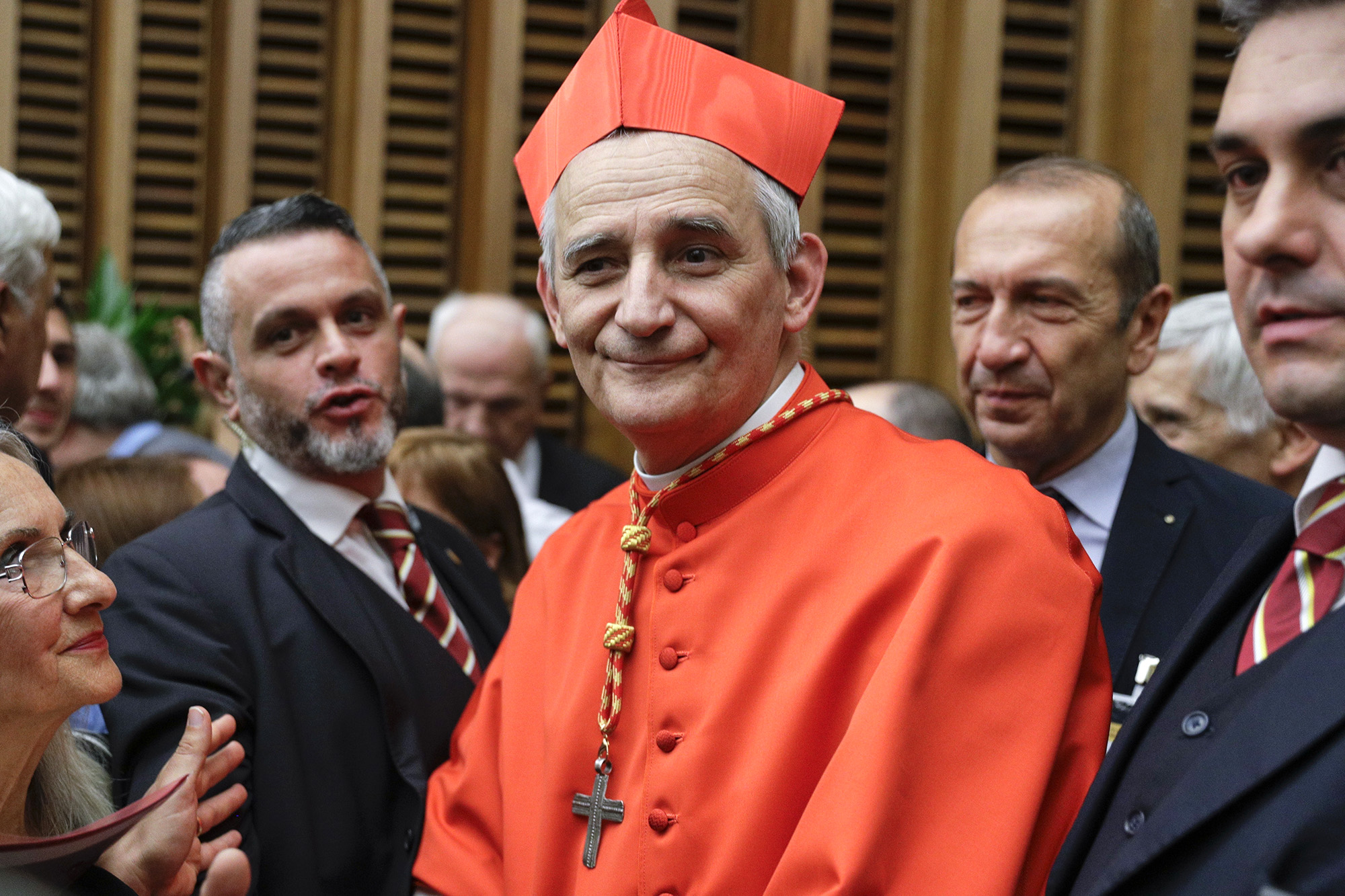
Pope Francis' peace envoy will travel to Moscow on Wednesday and Thursday this week, according to a statement from the Vatican Press Office.
"Cardinal Matteo Maria Zuppi, Archbishop of Bologna and President of the Italian Episcopal Conference, accompanied by an official of the Secretariat of State, will undertake a visit to Moscow, as the envoy of Pope Francis," the Vatican statement said.
"The principal scope of the initiative is to encourage gestures of humanity, which can contribute to favoring a solution to the current tragic situation and to finding paths to reach a just peace," it added.
Putin to speak to law enforcement units who stopped attempted Wagner mutiny
From CNN's Anna Chernova
President Vladimir Putin will today address the security forces that participated in Moscow's defensive efforts against the Wagner group mutiny on Saturday.
The event with invited law enforcement squads will take place in Cathedral Square inside the Kremlin, according to government spokesman Dmitry Peskov.
Russian Defense Minister Sergei Shoigu has appeared in the Kremlin ahead of the expected address.
Putin confirms deaths of Russian pilots in Wagner clashes
From CNN's Katharina Krebs
President Vladimir Putin praised the "courage and self-sacrifice" shown by Russian army pilots who died while fighting against Wagner troops over the weekend, after paramilitary chief Yevgeny Prigozhin led a failed insurrection against the Kremlin.
"I thank all our military personnel, law enforcement officers, special services who stood in the way of the rebels, remained faithful to their duty, oath and their people," he said in a national address on Monday.
"The courage and self-sacrifice of the fallen heroes-pilots saved Russia from tragic devastating consequences," he added.
Prigozhin said earlier that "not a single solider on the ground was killed," during his march toward Moscow on Saturday.
“We regret that we were forced to strikes on aircraft,” he said on Monday, adding: “But these aircraft dropped bombs and launched missile strikes.”
CNN's Mariya Knight in Atlanta and Anna Chernova contributed reporting.
Lukashenko addresses Belarus' involvement in stifling Wagner rebellion
From CNN’s Anna Chernova
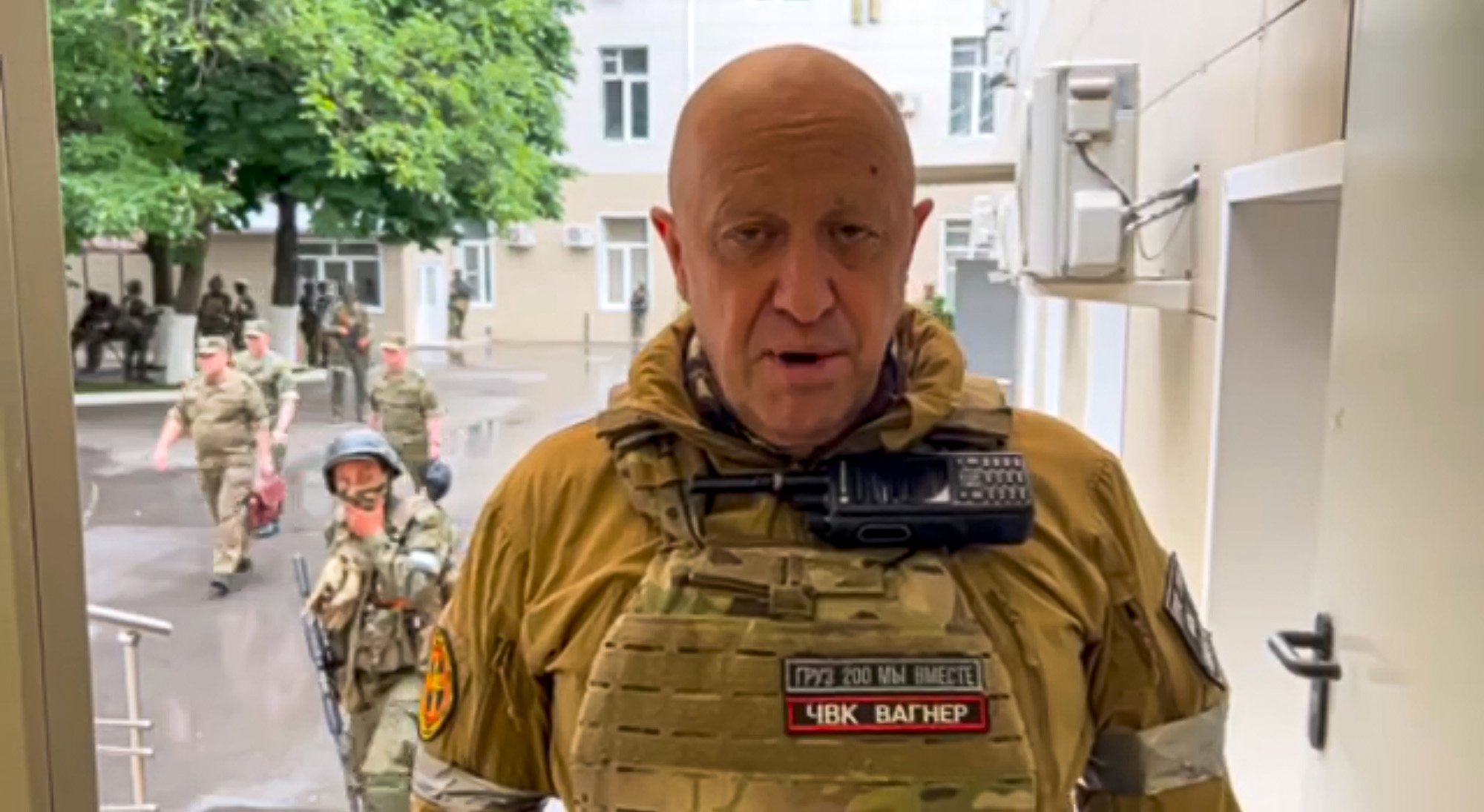
Belarusian President Alexander Lukashenko has highlighted his purported role in quelling the Wagner group's armed rebellion attempt against the Kremlin at the weekend, speaking about a deal between Moscow, Minsk and Wagner that has been shrouded in secrecy.
Lukashenko did not offer many details about the mediation, which led to paramilitary chief Yevgeny Prigozhin turning his fighters away from Moscow because he claimed he wanted to avoid spilling Russian blood.
“Given the role of Belarus in resolving this situation, I must say a few words here about what happened and explain our position and the decisions taken,” Lukashenko said, referring to the deal.
Lukashenko, who has a political track record of cracking down on dissent, claimed the Belarusian opposition was trying to make use of the situation.
"When the events in Russia took place, I gave all the orders to bring the army to full combat readiness,” he said.
“No one, not even in these snotty Telegram channels, blathered against it.
“All the [Belarusian] Armed Forces, including the police and special forces, were put on full alert,” he added.
“In no case should you make a hero out of me, neither of me, nor of [Vladimir] Putin, or of [Yevgeny] Prigozhin, because we missed the situation, and then we thought that it would resolve, but it did not resolve. And two people who fought at the front collided.
Russia says it will drop charges against Wagner for armed insurrection attempt
From CNN's Maria Kostenko, Clare Sebastian and Lauren Kent
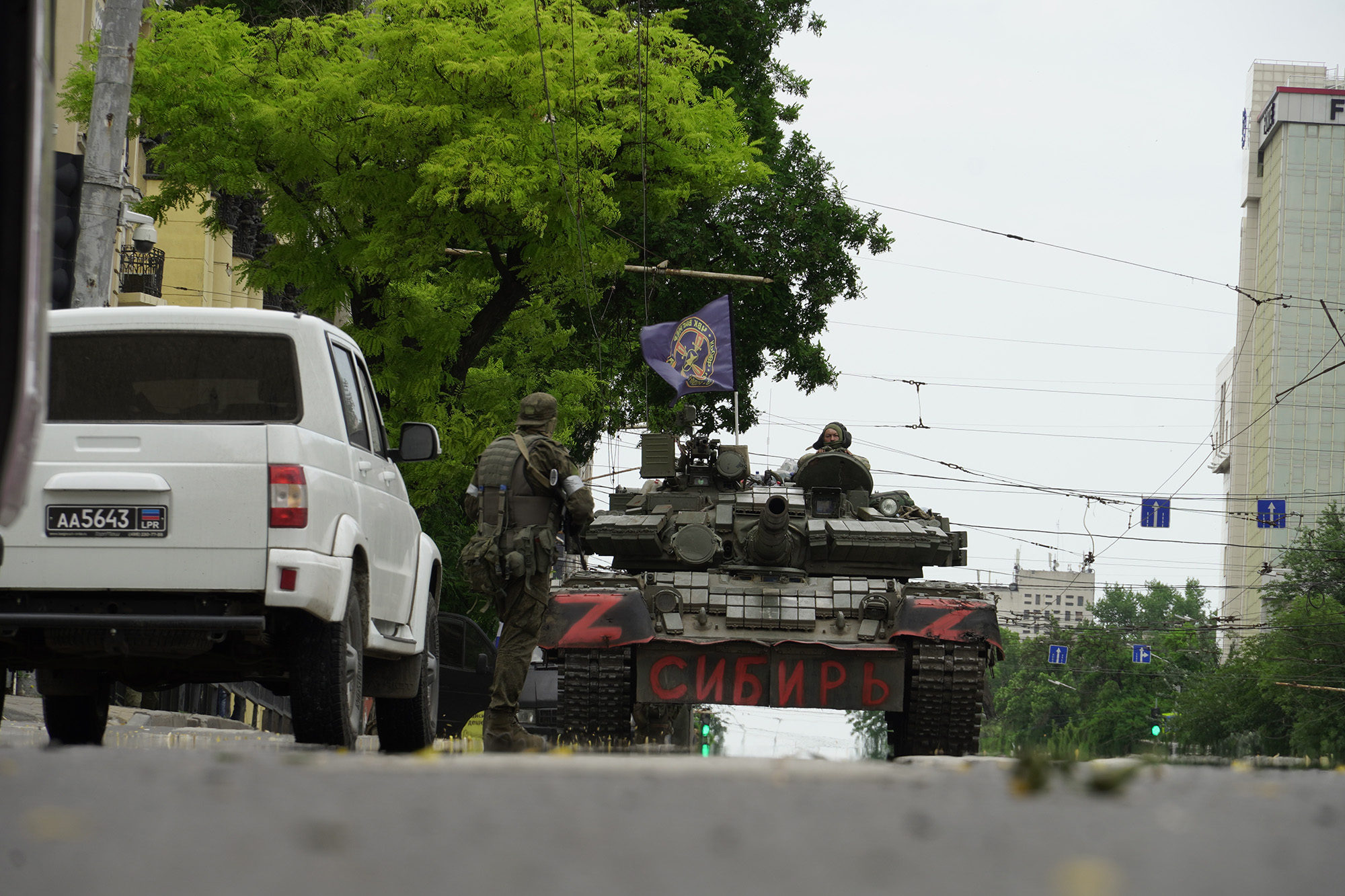
Russia's Federal Security Service (FSB) said on Tuesday that it will drop the case against the Wagner paramilitary group, after its fighters staged an attempted rebellion on Saturday that threatened President Vladimir Putin’s grip on power.
"The case of the armed insurrection armed was dropped on June 27, the FSB said," state media RIA Novosti reported.
"During the investigation of the case of the rebellion, it was established that its participants stopped their actions directly aimed at committing a crime, the case was closed," the FSB press service said in a statement on Tuesday.
The statement did not mention Wagner leader Yevgeny Prigozhin by name.
Wagner will also hand over its heavy military equipment to active units of the Russian military, the Russian Defense Ministry said on Tuesday, according to RIA Novosti.
On Monday, Wagner leader Yevgeny Prigozhin claimed that the mercenary group was due to leave its positions on June 30 and hand over equipment to the Southern Military District in Rostov, Russia.
However, he claimed Moscow's troops attacked Wagner forces on Friday, days before that handover was due to take place.
Belarus president says it was "painful to watch the events that took place in the south of Russia"
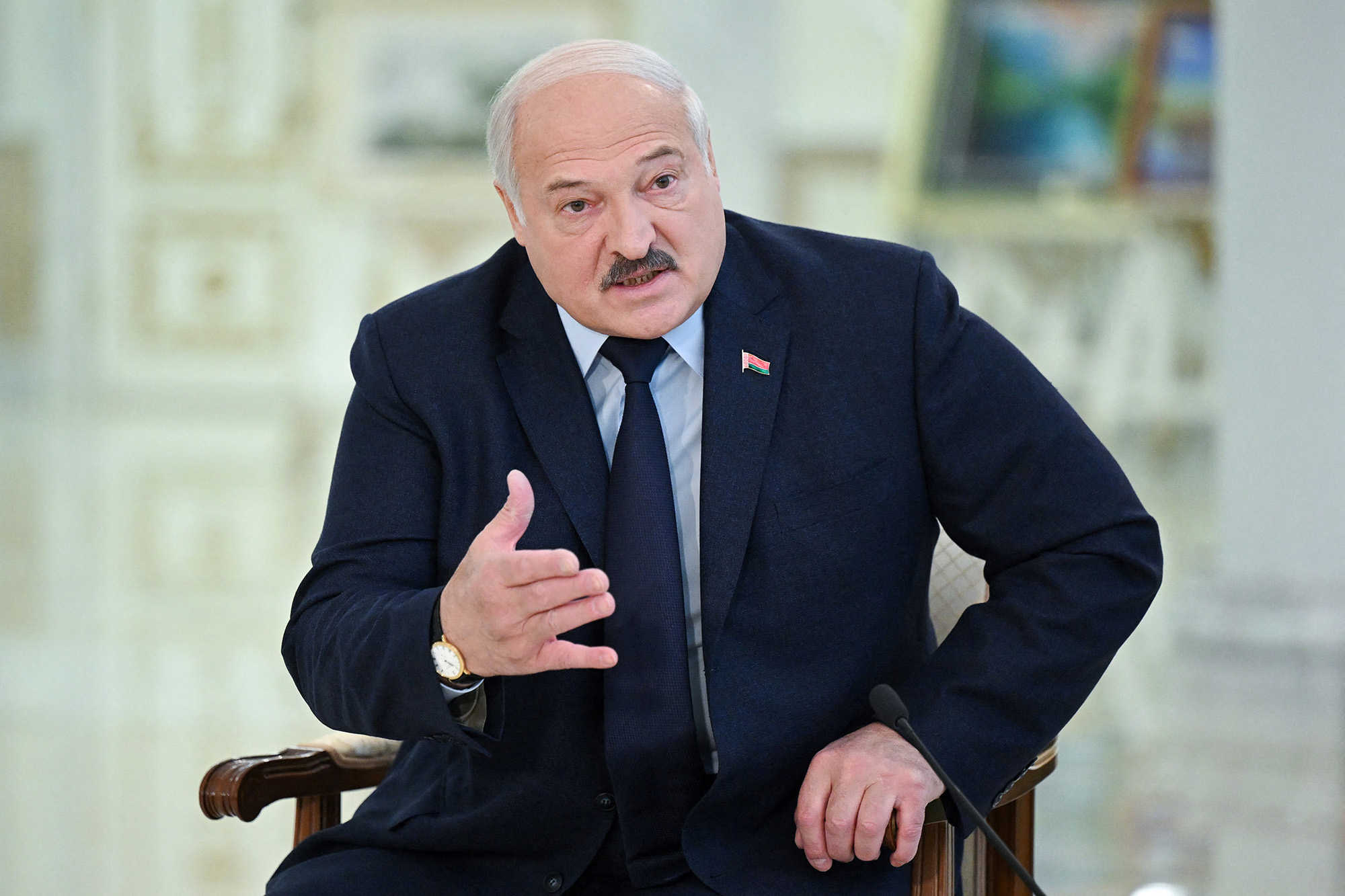
Belarusian President Alexander Lukashenko declared it was "painful to watch" Wagner boss Yevgeny Prigozhin's attempted insurrection over the weekend, in his first address since the most serious leadership challenge to ally Russian President Vladimir Putin.
“I won’t hide it, it was painful to watch the events that took place in the south of Russia," he said during an epaulette-giving ceremony in Minsk.
"Not only for me. Many of our citizens took them close to heart. Because there is only one fatherland," he added, according to Belarusian state news agency, BelTA. The comments were not televised nor have yet appeared in video clips.
Lukashenko did not make any reference to Prigozhin by name or say anything about his whereabouts. The Wagner head has not been seen in public since he called off his uprising on Saturday.
The Belarus president also said he had made military preparations during the events of the weekend. “I gave all orders to bring the army to full combat readiness,” he said.
Some background: Lukashenko, often referred to as "Europe's last dictator" purportedly had a hand in quelling the threat of mutiny on Saturday.
Prigozhin abruptly halted Wagner's advance, claiming his fighters had reached within 200 kilometers (124 miles) of Moscow but were retreating to avoid Russian bloodshed.
Lukashenko apparently made a deal with Prigozhin that would see the Wagner chief leave for Belarus; a criminal case against the mercenary boss would be dropped; and Wagner fighters would be folded into formal military structures by signing contracts with the Russian Ministry of Defense.
The decision followed an unprecedented intervention by Lukashenko himself, according to the Belarusian presidential press service. However, Russian and Belarusian officials have remained tightlipped on the details of the supposed deal.
Analysis: Biden turns the screw on Putin even as US denies role in Wagner rebellion
Analysis from CNN's Stephen Collinson
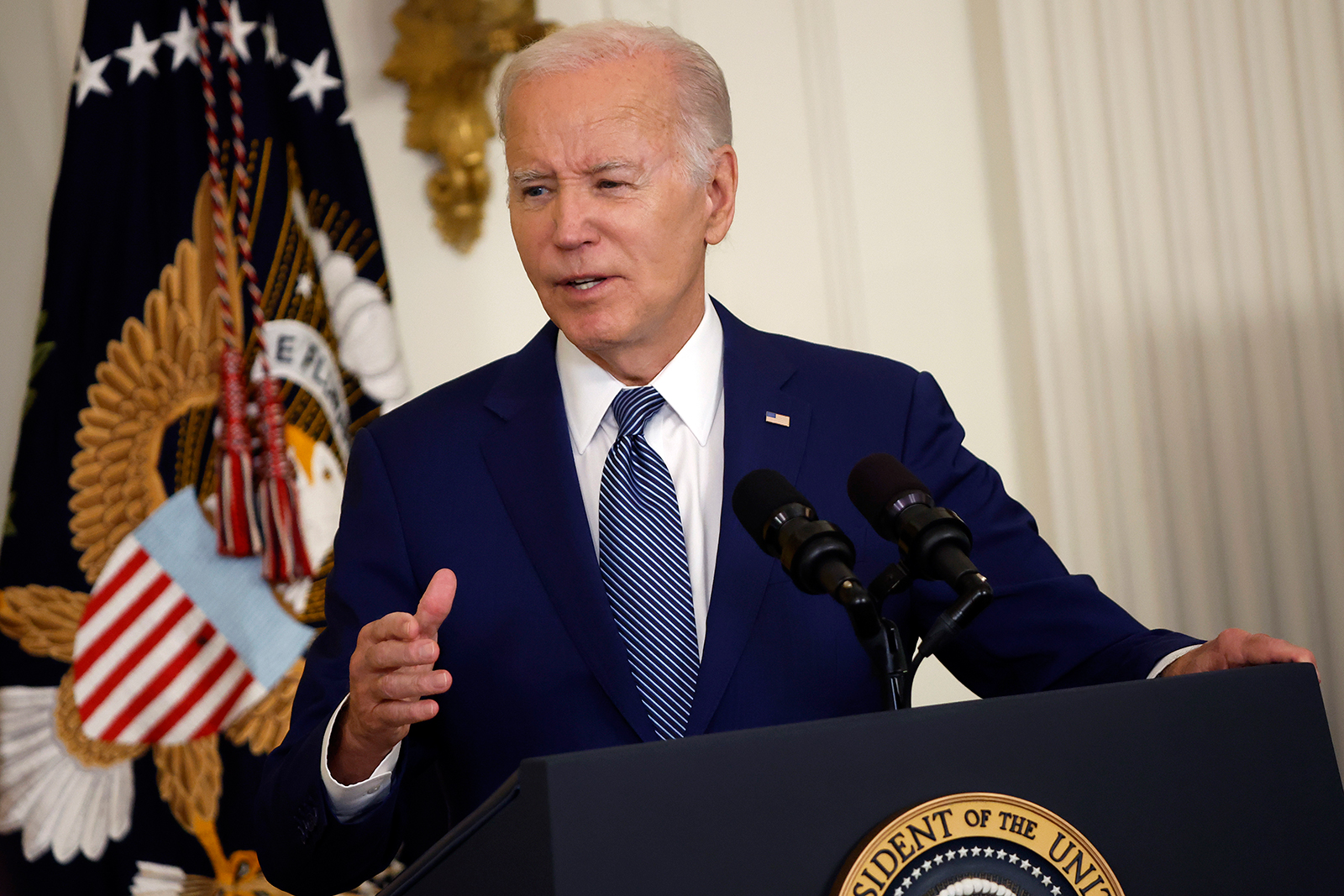
Russia’s short-lived insurrection has handed Joe Biden the most perilous version yet of a dilemma that has confounded the last five US presidents: how to handle Vladimir Putin .
Every US commander in chief since Bill Clinton has sought in some way to engage the former KGB officer, whose mission to restore Russian greatness was ignited by his humiliation at the fall of the former Soviet Union. Most have sought some kind of reset of US-Russia relations. But all failed to avert the plunge in ties between the two nuclear superpowers.
Biden, who came of age in Washington as a senator during some of the most embittered years of the US-Soviet standoff in the 1970s and 1980s, had fewer illusions about Putin than most. But even he tried to break the chill, by meeting his counterpart at a summit in Geneva in 2021.
Russia’s invasion of Ukraine, however, led him instead to reinvigorate the NATO alliance with an extraordinary pipeline of arms and ammunition designed to ensure the country’s survival. Western support has not only enabled Ukraine to fight back against invading forces, it has helped turn the war into a quagmire that spiked political pressure on Putin and created battlefield conditions that likely helped lead to mercenary chief Yevgeny Prigozhin’s revolt over the weekend.
Putin appeared on camera on Monday, defiantly warning that he would have had no trouble suppressing the uprising had the Wagner Group leader not chosen to halt his march on Moscow in a deal that ostensibly will see him exiled to Belarus.
But there was widespread agreement outside Russia that the showdown represented the most serious challenge to Putin’s grip on power during his generation in control and could even be a crack that spells the beginning of the end of his authority.
So Biden, therefore, faces a possibility that none of the predecessors who wrestled with Putin had to contemplate — that he is dealing with the endgame of this modern czar, and the prospect of instability rocking a nuclear superpower that could have global implications.
Read the full analysis here.
It's early morning in Moscow. Here's what you need to know about the situation in Russia
From CNN staff
In an address to the Russian nation Monday, President Vladimir Putin said Wagner's uprising "would have been suppressed anyway," but thanked mercenary fighters who made the "right decision" by halting their advance.
He then offered them a choice: sign contracts with Russia's Defense Ministry or other law enforcement, return to their families, or: "Whoever wants to can go to Belarus," he said.
Wagner's march was called off over the weekend when a supposed deal was struck that would see its chief, Yevgeny Prigozhin , move to Belarus.
Putin did not mention Prigozhin by name in his address Monday, but accused rebellion organizers of "betraying their country."
A source at Russia's Prosecutor General’s Office said Prigozhin remains under investigation . His whereabouts are unknown.
Here are the latest headlines on the rebellion and Russia's war in Ukraine:
- Putin meets top officials: The Russian President held a meeting with the heads of security agencies including Defense Minister Sergei Shoigu, a Kremlin spokesperson said Monday, according to state media. Prigozhin had previously accused Shoigu and Russia’s top general of not giving his forces ammunition and was critical of their handling of the conflict in Ukraine. Putin also spoke with the UAE's President about the rebellion , the Kremlin said.
- Wagner chief's reasoning: Earlier Monday, Prigozhin broke his silence in an audio message, saying he called off the march to prevent Russian bloodshed and the uprising was a protest — not an attempt to topple the government. He said the Russian Defense Ministry had planned for Wagner to "cease to exist" from July 1.
- US response: As Russia faced rebellion, White House officials reached out to foreign and domestic oil producers about the situation unfolding in one of the world’s leading oil powers, a US official told CNN. On Monday, US President Joe Biden said he'd instructed members of his national security team to "prepare for a range of scenarios." Biden emphasized the US and its allies had "nothing to do" with Saturday's events in Russia.
- Lukashenko to speak: Belarusian state media said President Alexander Lukashenko will answer questions from reporters on Tuesday, according to Russian state media. Prigozhin had agreed Saturday to leave Russia for Belarus, the Kremlin said, in a deal apparently brokered by Lukashenko, a close Putin ally.
- US intel aware: US intelligence officials were gathered an extremely detailed and accurate picture of Prigozhin's plans leading up to his rebellion , including where and how Wagner was planning to advance, sources familiar with the matter told CNN. But the intelligence was so closely held that it was shared only with select allies, including senior British officials, and not at the broader NATO level, sources said.
- State Duma says defenses in control: The Russian State Duma, or lower parliament, said the defense forces exercised total control during the rebellion , according to Russian state media. Andrey Kartapolov, the Duma's head of the Defense Committee, said, "no chaos arose in the Russian defense forces in the background of an attempted armed rebellion, combat control was not interrupted even for a minute."
- Kyiv claims advances: President Volodymyr Zelensky said Ukrainian forces have made advances on all fronts . The remarks followed his visit to the front lines in the Donetsk region on Monday. Ukraine's military said separately that Russia was focusing its efforts on cities in the eastern region.
China's foreign minister touts Beijing and Moscow as a force for "global peace"
From CNN's Hira Humayun
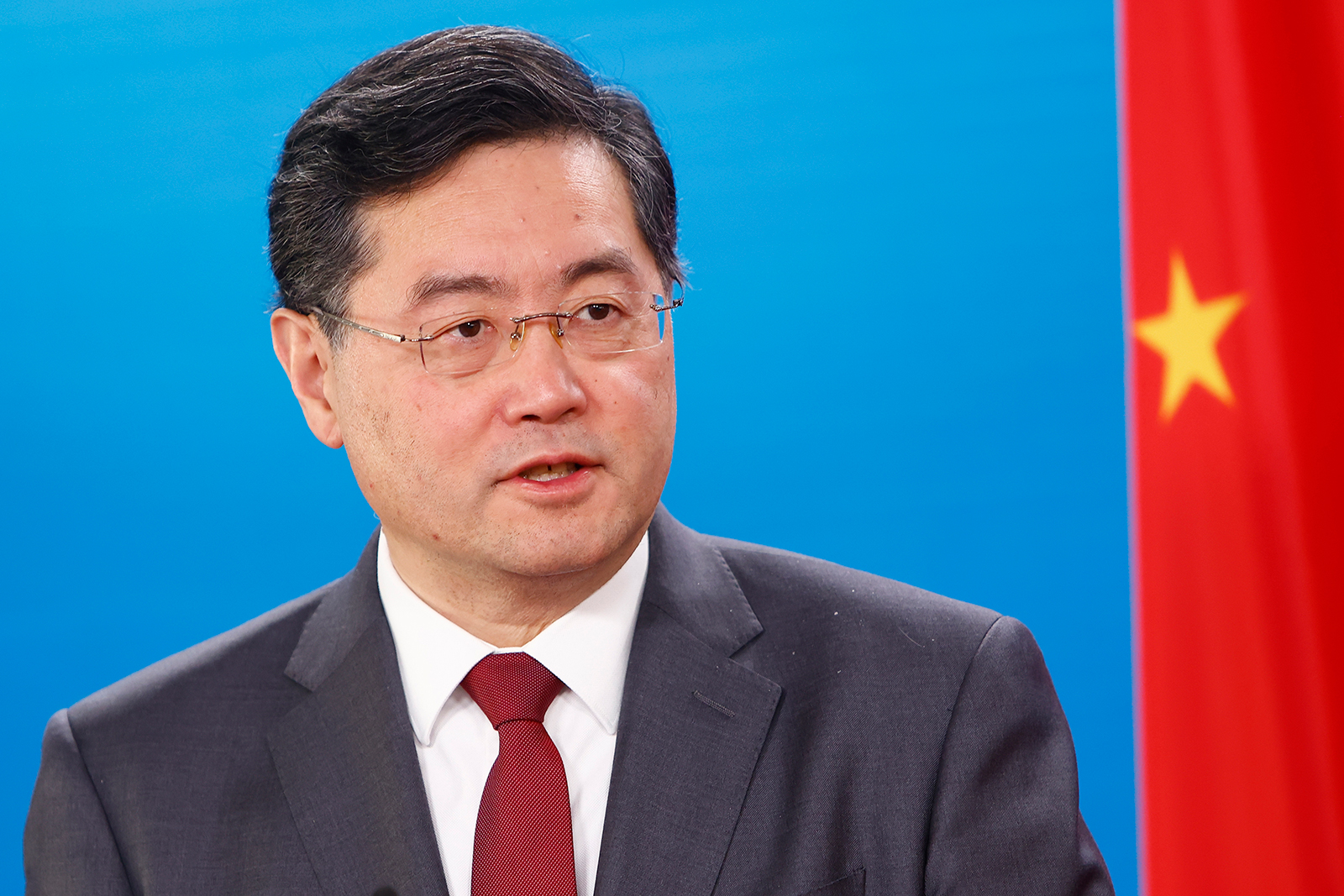
Russia and China are "an important force in ensuring global peace and in promoting inclusive development," Chinese Foreign Minister Qin Gang claimed in a video address Tuesday, according to Russian state news agency TASS.
Speaking at a conference in Beijing held by the Russian International Affairs Council and the Chinese Academy of Social Sciences, Qin reiterated Beijing's support for Moscow, saying it plans to work with Russia to oppose the "use of force and hegemony of individual states," TASS said.
Qin's remarks come after senior Chinese officials expressed support for Moscow during a meeting with Russia's Deputy Foreign Minister Andrey Rudenko in Beijing on Sunday following the Wagner rebellion , according to a Russian Foreign Ministry statement.
On Sunday, a Chinese Foreign Ministry spokesperson referred to the uprising as Russia's "internal affair" and added: "As Russia’s friendly neighbor and comprehensive strategic partner of coordination for the new era, China supports Russia in maintaining national stability and achieving development and prosperity."
Some context: China and Russia declared a friendship with “no limits” in February 2022, shortly before Russian President Vladimir Putin launched his war on Ukraine. Since then, Beijing has refused to condemn the invasion and instead provided much-needed diplomatic and economic support for Russia while attempting to portray itself as a peacemaker in the conflict — a position that has further soured its relations with Western nations.
Please enable JavaScript for a better experience.
- Election 2024
- Entertainment
- Newsletters
- Photography
- Personal Finance
- AP Investigations
- AP Buyline Personal Finance
- AP Buyline Shopping
- Press Releases
- Israel-Hamas War
- Russia-Ukraine War
- Global elections
- Asia Pacific
- Latin America
- Middle East
- Election Results
- Delegate Tracker
- AP & Elections
- Auto Racing
- 2024 Paris Olympic Games
- Movie reviews
- Book reviews
- Personal finance
- Financial Markets
- Business Highlights
- Financial wellness
- Artificial Intelligence
- Social Media
Pope makes personal appeal in remarkable Russia embassy trip
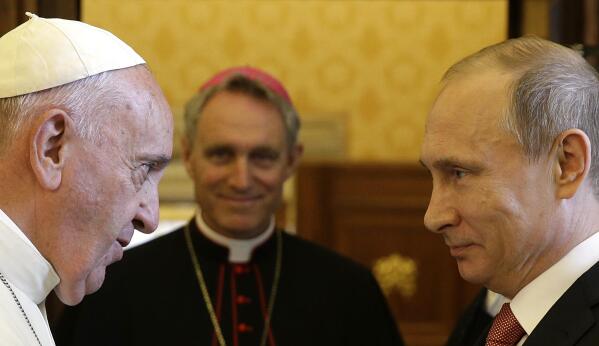
FILE - Pope Francis meets Russian President Vladimir Putin on the occasion of their private audience at the Vatican on June 10, 2015. Pope Francis went to the Russian Embassy on Friday, Feb. 25, 2022 to personally “express his concern about the war,” the Vatican said, in an extraordinary, hands-on papal gesture that has no recent precedent. Usually, popes receive ambassadors and heads of state in the Vatican, and diplomatic protocol would have called for the Vatican foreign minister to summon the ambassador. (AP Photo/Gregorio Borgia, Pool)
FILE - Pope Francis, center, holds onto Monsignor Leonardo Sapienza as he walks down some steps during his weekly general audience in the Paul VI Hall at the Vatican, on Feb. 09, 2022. Pope Francis has canceled a visit Sunday to Florence and will not preside over Ash Wednesday commemorations next week because of what the Vatican said Friday was a flareup of “acute” knee pain. The Vatican said the 85-year-old pope was cancelling his participation after his doctors prescribed a period of rest. The pope has been suffering for several weeks for what he has said is an inflamed ligament in his right knee. (AP Photo/Gregorio Borgia)
FILE - Pope Francis welcomes Russian President Vladimir Putin, left, on the occasion of their private audience at the Vatican, on July 4 2019. Pope Francis went to the Russian Embassy on Friday, Feb. 25, 2022 to personally “express his concern about the war,” the Vatican said, in an extraordinary, hands-on papal gesture that has no recent precedent. Usually, popes receive ambassadors and heads of state in the Vatican, and diplomatic protocol would have called for the Vatican foreign minister to summon the ambassador. (Alessandro Di Meo/Pool Photo via AP, File)
Pope Francis speaks during his weekly general audience in the Paul VI Hall at the Vatican, Wednesday, Feb. 23, 2022. At left Monsignor Leonardo Sapienza. (AP Photo/Gregorio Borgia)
- Copy Link copied
ROME (AP) — Pope Francis went to the Russian Embassy on Friday to personally “express his concern about the war” in Ukraine, in an extraordinary, hands-on papal gesture that has no recent precedent. Francis later assured a top Ukrainian Greek Catholic leader he would do “everything I can” to help.
Usually, popes receive ambassadors and heads of state in the Vatican, and diplomatic protocol would have called for the Vatican foreign minister to summon the Russian ambassador. Francis is the Vatican head of state, and for him to leave the walled city state and travel a short distance to the Russian Embassy to the Holy See was a sign of his anger at Moscow’s invasion and his willingness to appeal personally for an end to it.
Vatican officials said they knew of no such previous papal initiative.
Vatican spokesman Matteo Bruni confirmed the visit, and the Vatican said Francis traveled to and from the embassy in a small white car.
“The Holy See press office confirms that the pope went to the Russian Embassy to the Holy See on Via della Conciliazione, clearly to express his concern about the war. He was there for just over a half-hour,” Bruni said.
Francis has called for dialogue to end the conflict and has urged the faithful to set next Wednesday as a day of fasting and prayer for peace in Ukraine. But he has refrained from publicly calling out Russia by name, presumably for fear of antagonizing the Russian Orthodox Church.
Just this week, at the end of his Wednesday general audience, he refrained from naming Russia when he urged political leaders to examine their conscience before God and avoid actions that harm civilians and “discredit international law.”
A day later, the Vatican secretary of state, Cardinal Pietro Parolin, held out hope for diplomacy. “There is still time for good will, there is still room for negotiation, there is still room for the exercise of a wisdom that prevents the prevalence of partisan interests, protects the legitimate aspirations of each and saves the world from the madness and horrors of war,” Parolin said in a statement.
A person who answered the phone Friday at the Russian Embassy said Ambassador Alexander Avdeev wasn’t there; there was no immediate reply to an email sent to the embassy seeking comment.
The head of the Ukrainian Greek Catholic Church, the largest Eastern Rite church in communion with Rome, welcomed Francis’ protocol-bending diplomatic intervention and said he hoped it would help dialogue prevail over force.
His Beatitude Sviatoslav Shevchuk said the pope later phoned him in Kyiv and assured him “I will do everything I can.”
Shevchuk, who has hunkered down in a bunker under his cathedral along with Ukrainian civilians seeking shelter, said Francis inquired during the call about the plight of clerics in the hardest-hit areas of Ukraine.
The pope thanked the Greek Catholic Church leader for opening the doors of the cathedral and staying with his flock, Shevchuk’s office said in a statement.
Francis assured Shevchuk of his support and prayers for Ukraine and its “suffering people,” the statement said.
News of Francis’ initiative came just after the Vatican announced he had canceled a scheduled Sunday visit to Florence and will not preside over Ash Wednesday commemorations next week because of a flareup of “acute” knee pain. The Vatican said the 85-year-old pope’s doctors had prescribed a period of rest.
The pope, who has long had sciatica nerve pain that makes him walk with a pronounced limp, has suffered for several weeks with what he has said is an inflamed ligament in his right knee. He has cited the pain in explaining his limited mobility recently and his decision to remain seated during events that would otherwise have him stand.
Francis had been due to travel to Florence for a half-day visit Sunday to address a meeting of Mediterranean bishops and mayors and to celebrate Mass. It would have been his first pastoral visit within Italy since the pandemic.
He was to have presided over Ash Wednesday commemorations, including a short procession, at a church outside the Vatican in the Aventine neighborhood of Rome.
The Argentine Jesuit enjoys generally good health, though he had 33 centimeters (13 inches) of his large intestine removed in July. Francis also had part of one lung removed when he was a young man after a respiratory infection.
Despite the knee pain, the Vatican on Friday released Francis’ itinerary for an April 2-3 visit to Malta, making clear he plans to go ahead with his agenda.
Color Scheme
- Use system setting
- Light theme
Pope Francis ready to visit Ukraine and Russia
German Press Agency
ROME – Pope Francis says he is willing to travel to Ukraine, which is under attack from Russia, but only on the condition that he can also travel to Moscow.
“I will go to both places or to neither,” the head of the Catholic Church said in an interview with Saturday’s edition of the Argentinian newspaper La Nacion.
The war in Ukraine could only be ended through dialogue and concrete peace initiatives, he said. The pontiff, 86, was already considering a trip to the countries last summer. At that time he also said he would like to visit Kyiv and Moscow.
The Vatican has long sought to play a mediating role in the conflict – in this context, he spoke to La Nacion of the “desire to serve peace.” In the interview, Francis reported how he had asked Russian leaders whether he could travel to Moscow on the second day after the full-scale Russian invasion of Ukraine. Russian Foreign Minister Sergei Lavrov, he said, had declined with thanks at the time.
The pontiff reiterated his dismay at the war: “The war hurts me, that’s what I want to say. The war hurts me.”
In his public appearances and audiences, he regularly speaks of the suffering of Ukrainians. For diplomatic reasons, he does not mention Russia by name.
Advancing rural health in Northeast Washington and beyond
Access to health care across rural Washington is a growing challenge.
Pope Francis offers to meet Putin to try to end Ukraine war
Pope Francis says he made a request to meet Russian president three weeks after Putin ordered the invasion of Ukraine.
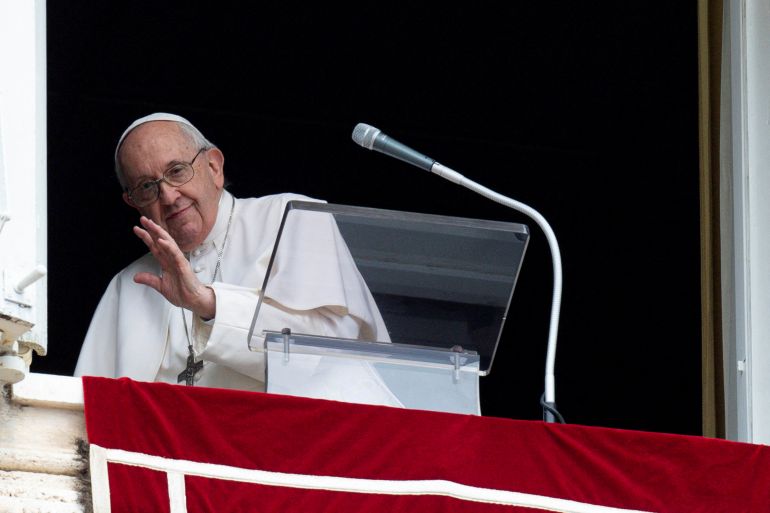
Pope Francis has said he offered to travel to Moscow to meet Russian President Vladimir Putin in an effort to stop the war in Ukraine but has yet to hear back.
The pontifex made the request for a meeting via the Vatican secretary of state, Cardinal Pietro Parolin, 20 days after Putin ordered troops to enter Ukraine on February 24 , the pope told the Italian newspaper Corriere della Sera in an interview published on Tuesday.
Keep reading
Having pets instead of kids robs us of ‘humanity’, pope says, ex-pope benedict accused of inaction in sexual abuse cases, ex-pope benedict admits faulty testimony in child abuse case.
Popes for decades have sought to visit Moscow as part of the longstanding effort to heal relations with the Russian Orthodox Church, which split with Rome more than 1,000 years ago. But an invitation has never been forthcoming.
“Of course, it would be necessary for the leader of the Kremlin to make available some window of opportunity,” the pope was quoted as saying.
“But we still have not had a response and we are still pushing, even if I fear that Putin cannot and does not want to have this meeting at this moment,” he added.
Following suggestions over a visit to the Ukrainian capital, the pope was clear: “I am not going to Kyiv now … I have to go to Moscow first, I have to meet Putin.”
. @Pontifex_it : «I am ready to meet Putin in Moscow» | exclusive interview with @lucfontana , editor in chief @corriere https://t.co/Yxvs44i7pu — Corriere della Sera (@Corriere) May 3, 2022
During the interview, Francis also reported a conversation he had in March with the Russian Orthodox Church’s Patriarch Kirill – a staunch supporter of the invasion.
“With paper in hand, he read all of the justifications for the war,” the pope told Corriere. “I listened and told him: ‘I don’t understand any of this. Brother, we are not clerics of the state, we cannot use language of politics, but that of Jesus … For this we need to find the paths of peace, to stop the firing of arms.’”
“He can’t turn into Putin’s altar boy,” Francis added. The two religious leaders were supposed to meet in Jerusalem, but the Vatican called off the meeting to avoid “confusion”.
The pope has repeatedly called for an end to the hostilities in the war-torn country but has not directly criticised Putin.
In early April, the pope said some “potentate, sadly caught up in anachronistic claims of nationalist interests, is provoking and fomenting conflicts”.
Francis has frequently denounced the weapons industry and the announced increases in defence spending by the West in recent weeks.
But he has also defended the right of Ukrainians to protect their territory from the Russian invasion, in line with Catholic social doctrine. He told Corriere he felt he was too removed to judge the morality of resupplying the Ukrainian armed forces from the West.
But he also said he was trying to understand why Russia had reacted as it had. Maybe “this barking of NATO at Russia’s door” had prompted it, he was quoted as saying, “An anger that I don’t know if you can say was provoked, but may be facilitated.”
Pope makes surprise visit to Russian Embassy to the Vatican
The visit came as a surprise as it did not follow typical protocol.
The Vatican press office confirmed that Pope Francis made a visit to the Russian Embassy to the Holy See to express his concern about the fighting in Ukraine on Friday morning.
The Russian Embassy to the Holy See is a short distance outside of Vatican City situated on the road leading into St. Peter's Square, and this was seen by most as a strong personal papal initiative.
Aside from saying the visit lasted just over an hour, the Vatican provided no further information nor distributed any video or photographs. The pope was seen leaving the embassy building seated in the front seat of a small, white car.
MORE: Russia-Ukraine live updates
Ambassador Aleksandr Avdeyev, the Russian diplomat at the embassy, told Russian media that "the pope personally wanted to ask about the situation in Donbas and Ukraine" and expressed his great concern about the humanitarian situation and conditions of the population. He reportedly urged for the care of children, the sick and the people who were suffering.
The pope's surprise and unprecedented visit to the embassy took many Vatican watchers by surprise, as it is normal protocol for ambassadors to come to the Vatican to meet with the pope. However, Pope Francis has in the past dropped in to see people in Vatican offices outside the walls of the tiny state when he has urgent matters he wishes to discuss.
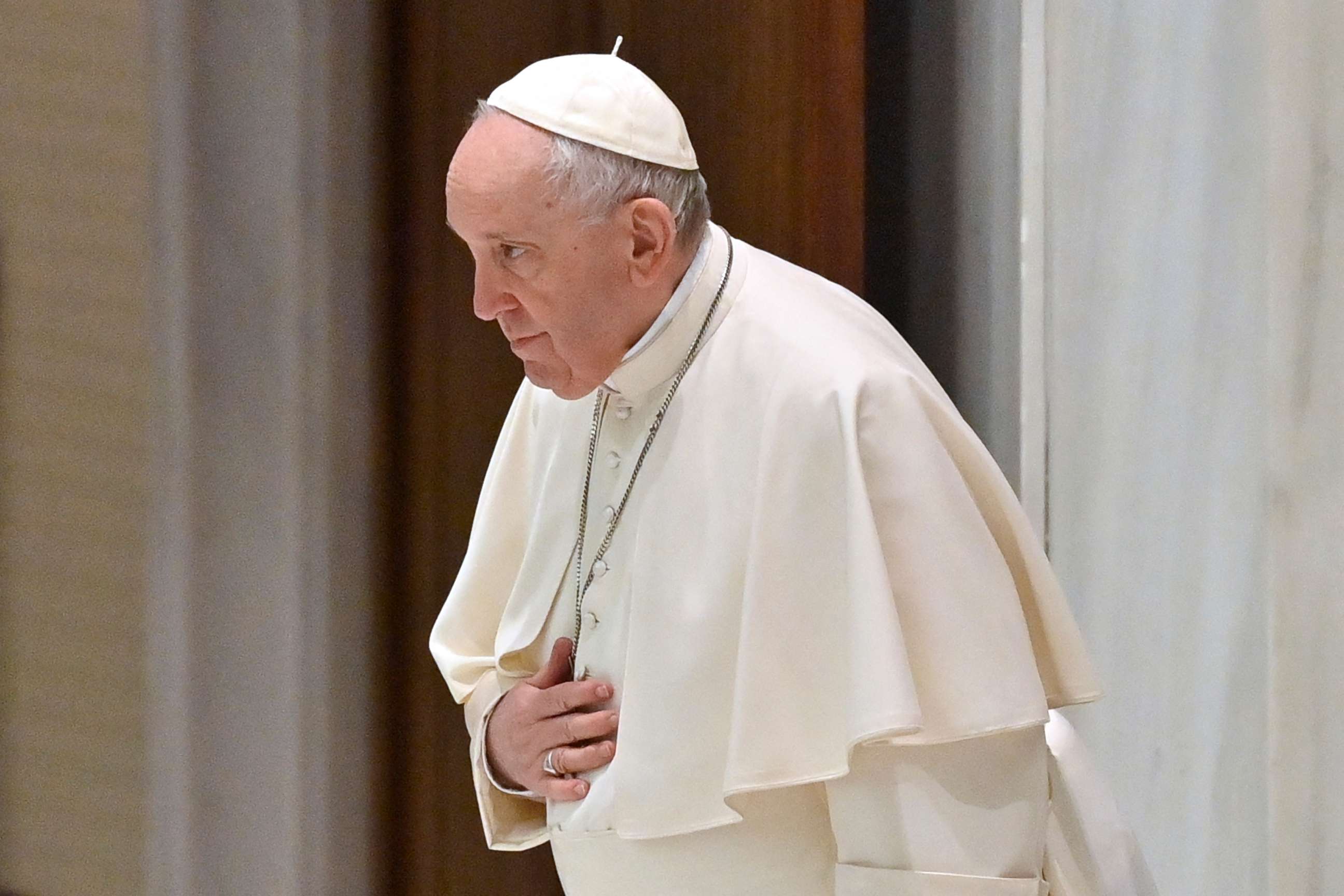
On Thursday, Cardinal Parolin, the Vatican's secretary of state, said in a video statement released after the start of Russian military operations in Ukraine that although the tragic scenarios everyone feared were becoming reality "there is still time for goodwill, there is still room for negotiation." He said he hoped those who hold the destiny of the world in their hands would have a "glimmer of conscience."
Commentators have noted that the pope and the Vatican have been careful about publicly criticizing and naming Russia, some say, so as not to antagonize the Russian Orthodox Church.
On Wednesday at the end of his general audience in the Vatican, Pope Francis called on believers and nonbelievers to pray and fast for peace in Ukraine on Ash Wednesday to combat the "diabolical insistence, the diabolical senselessness of violence," saying that "once again the peace of all is threatened by partisan interests."
MORE: Questions about the Ukraine-Russia conflict, answered
He appealed to those with political responsibilities to do a serious examination of conscience before God and urged world leaders to "refrain from any action that would cause even more suffering to the people, destabilizing the coexistence between nations and discrediting international law."
Earlier Friday, the Vatican press office announced the pope would not make his scheduled one-day trip to Florence Sunday and would have to skip the Ash Wednesday ceremony in the Vatican at the start of Lent due to a flare up of knee pain. His doctors have told him he needs a longer period of rest, but that did not seem to stop him making Friday's surprise visit.
Related Topics
- Catholic Church
Top Stories
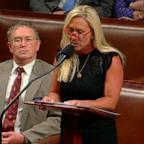

House quickly kills Marjorie Taylor Greene's effort to oust Speaker Johnson
- May 8, 7:25 PM
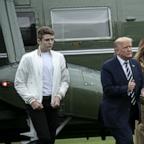
Barron Trump picked to serve as a delegate at Republican National Convention
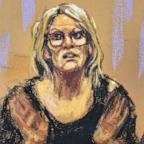
What Stormy Daniels said on the stand about her alleged encounter with Donald Trump
- May 7, 4:09 PM
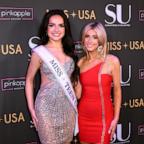
Miss Teen USA 2023 resigns 2 days after Miss USA gives up title
- May 8, 6:09 PM

Marathon winner disqualified after taking water from his dad in race: 'I know I won'
- May 8, 3:26 AM
ABC News Live
24/7 coverage of breaking news and live events
Pope Francis has not accepted an invitation to meet with Vladimir Putin in Russia

VATICAN CITY (CNS) — Pope Francis has not accepted an invitation to travel to Moscow in June to meet with Vladimir Putin, the director of the Holy See press office said.
A report on the website of Intelligence Online, a French journal, “does not correspond to the truth,” Matteo Bruni told reporters March 20.
A story on the website March 19 had said Ivan Soltanovsky, the Russian ambassador to the Holy See, invited the pope to meet Vladimir Putin in Moscow in June, “an invitation that the pope accepted,” Intelligence Online had reported.
The journal said the pope, who repeatedly has been invited to visit Ukraine, would travel to Kyiv immediately after visiting Moscow.
After Russia launched its large-scale invasion of Ukraine in February 2022, Pope Francis said he would be willing to accept the invitation of the Ukrainian government to visit, but only if he could visit Moscow as well.
Earlier the Russian news agency RIA Novosti had reported that Pope Francis had congratulated Putin on his victory in the presidential election March 17, an election Western observers described as rigged. Bruni had told Catholic News Service March 18 that the report was not true.
The Vatican has repeatedly offered to act as a mediator between Ukraine and Russia, and last year Pope Francis sent his peace envoy for Ukraine, Italian Cardinal Matteo Zuppi of Bologna, to Kyiv, Moscow, Washington and Beijing to meet with foreign leaders and advance peace talks on Ukraine.
In early March, however, the pope caused consternation when segments of an interview were released in which he said Russia and Ukraine need to have the “courage of the white flag” to halt the fighting and negotiate.
The phrase “white flag” usually refers to surrendering, and Ukrainian leaders were outraged.
Pope Francis was not asking Ukraine to consider surrendering to Russia when he called for negotiations to end the war, but he was calling for both Russia and Ukraine to cease hostilities and engage in peace talks, said Cardinal Pietro Parolin, Vatican secretary of state.
At the end of his weekly general audience March 20, praying for peace in Ukraine and in the Holy Land, Pope Francis said, “War is always a defeat.”
“We must make every effort to discuss, to negotiate to end war,” he said. “Let’s pray for this.”

Most popular

Your source for jobs, books, retreats, and much more.
The latest from america
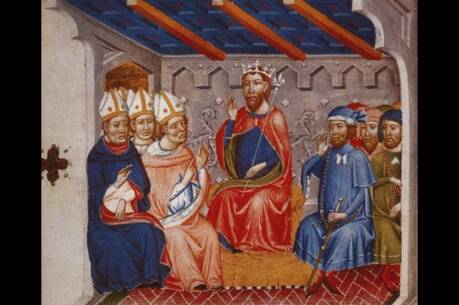
Advertisement
Supported by
Secret ‘Mission’ for Peace in Ukraine May Show Limits of Pope’s Influence
Since Francis made cryptic reference to a Vatican peace effort, the suggestion has elicited denial or bewilderment by war’s protagonists.
- Share full article

By Jason Horowitz
ROME — A secret mission revealed days ago by Pope Francis to bring peace between Russia and Ukraine is so secret that Russia and Ukraine claim to know nothing about it.
The Kremlin said on Tuesday that it had no idea what the pope was talking about. “Ukraine doesn’t know about it,” Ukraine’s ambassador to the Holy See, Andrii Yurash , said in an interview Wednesday, adding that he had scheduled a meeting for Thursday with the pope’s foreign minister. “I will for sure ask him what it is.”
Later Wednesday evening, the pope’s second-in-command and chief diplomat, Secretary of State Cardinal Pietro Parolin, told reporters, “to my knowledge, they were and are aware” of the peace plan, saying that the denial by the governments “surprises me.”
The apparent bewilderment of the war’s parties, and confusion around the existence of a plan contributed to the sense that the pope’s influence as a geopolitical player and peacemaker — already chastened in countries like Cuba, South Sudan and Myanmar — did not extend to Ukraine.
Some supporters of Ukraine worry that in his eagerness to play a constructive role, Francis may be reducing himself to a pawn for the likes of President Vladimir V. Putin of Russia or the Russian Orthodox Church, which has sought to give religious legitimacy to the invasion .
During a visit to Budapest last weekend, Francis met privately with Prime Minister Viktor Orban of Hungary, who has been a frequent defender of Russia, and a top Russian Orthodox Church prelate in Hungary, Metropolitan Hilarion. On the plane home, Francis was asked by journalists whether he thought the two men could accelerate the peace process or facilitate a meeting between Francis and Mr. Putin.
Francis answered with a cryptic reference to “a mission going on now, but it is not public yet” to bring peace, adding “when it is public I will talk about it.”
Asked about the comments, the office of Archbishop Paul Gallagher, the foreign minister, responded that since the “matter is under consideration,” it could not provide information for now, “but will do so in the near future.”
But what little is actually known about that effort has drawn either denial (the metropolitan on Wednesday said he had no conversation about a peace plan with Francis), bafflement or deep skepticism from informed observers.
“The pope is out of the picture,” said Lucio Carraciolo, the editor of the leading Italian foreign affairs journal Limes. In December, he organized an event at the Italian Embassy to the Holy See featuring Cardinal Parolin, who called for a “ European peace conference ” to help end the war.
“How can a Catholic pope be a mediator in an Orthodox environment?” Mr. Carraciolo said, adding that with Francis, the church “has no relevance in this kind of war.”
Still, the Vatican has actively tried to engage with both sides, working on prisoner releases and promising the Ukrainians that it would do what it could to help return children taken by Russia . One former Vatican official on Wednesday told the Italian press about a seven-point plan for a peace process that included getting major stakeholders around a table mediated by the Vatican.
Mr. Yurash, the Ukrainian ambassador, said the Vatican has consistently expressed a desire to be involved in an eventual peace negotiation, and that to do that, its officials told him, it had to keep open “bridges” and “lines” to Russia.
But he noted that the Kremlin had repeatedly stymied Vatican overtures for a papal meeting with Mr. Putin, which Francis has repeatedly said would be a prerequisite for a meeting with Ukraine’s president, Volodymyr Zelensky.
Mr. Yurash argued the Russian Orthodox Church was trying to gain “legitimacy” through its relationship with the Vatican for “obvious aims of Russian propaganda.”
“It’s not absolutely clear for my side why the Holy See is always trying to still continue this very special relation with the Russian church and the Russian state,” he said, adding that the Ukrainian people, already suffering under an invasion, “cannot understand” the pope’s positioning.
Francis has repeatedly recalled that on the first day of the war he called Mr. Zelensky, and then, to make what he has called a “clear gesture” of his openness to talk, visited Aleksandr Avdeyev, the Russian ambassador to the Holy See.
On the flight back from Budapest he called Mr. Avdeyev “a great man, a man comme il faut, a serious, cultured and balanced person.”
Mr. Avdeyev did not return a request for comment.
Francis’ openness to dialogue has also, especially in the beginning of the war, drawn criticism for assuming a neutrality that critics considered morally questionable in the face of clear Russian aggression.
The pope’s early reluctance to name Russia as the aggressor eventually led to criticism from Ukraine and warnings that he was in danger of ending up on the wrong side of history, with historians invoking Pius XII, who stayed essentially silent about Hitler’s Holocaust.
In May 2022, Francis wondered in an interview with the Corriere della Sera, an Italian newspaper, whether “NATO barking at Russia’s doors” may have “facilitated” anger from the Kremlin that led to the invasion.
But in the same interview, he seemed to damage his status as an honest broker when he said he had pointed out to Patriarch Kirill I, the leader of the Moscow-based Russian Orthodox Church, who he spent years courting to mend a split between the Western and Eastern churches going back to 1054, “the patriarch cannot be transformed into Putin’s altar boy.”
After eventually condemning Russia as the aggressor, Francis has since compared Russia’s behavior to massacres under Stalin and has consistently supported Ukrainians and called attention to their plight.
But Mr. Carraciolo said, the pope’s differing views could charitably be characterized as a “puzzle” that generated confusion and effectively disqualified the pontiff as a potential interlocutor.
Revealing an effort after meeting with players closer to the Russian side in Budapest was “not smart,” he said, also adding, “if it’s secret, you have to keep it secret.”
Since the beginning of his pontificate, Francis has thrown himself into real conflicts in the hopes of having a real, and not just moral, impact on the world stage. But after early success in playing a role in a historic diplomatic breakthrough between Cuba and the United States in 2015, his efforts have rarely borne fruit.
Cuba, where he has sent an envoy to secure the release of political prisoners, has not freed them. In 2019, he knelt in the Vatican and kissed the feet of the warring leaders of South Sudan, imploring them to stop a yearslong civil war. But in February, he upbraided the leaders in the country’s capital, Juba, for slipping back into violence.
Flavio Lotti, who organizes a yearly peace march from Perugia to Assisi, said that the pope’s strong voice on issues of peace, disarmament and support for migrants, “makes Francis unique, but doesn’t make him stronger.”
Still, Mr. Lotti said Francis served as an important “lighthouse” for everyone who seeks to put “the conditions of real people also at the heart of geopolitical problems. It’s in the trying.”
While even some supporters of Francis worry he risks coming off as geopolitically impotent if no plan materializes or gets traction, it is clear for now that the pope had again become a center of attention. Mr. Yurash said he had received a barrage of calls from fellow ambassadors to the Vatican, including from the United States, asking what he knew.
As the ambassador showed pictures in his office of himself with Francis and Cardinal Parolin and pointed out a stuffed animal, shredded in a Russian attack, that he hoped to give to the pope as a reminder of the suffering of the country’s children, his phone rang.
“The Polish ambassador,” he said, excusing himself. “Everybody is calling me.”
Jason Horowitz is the Rome bureau chief, covering Italy, the Vatican, Greece and other parts of Southern Europe. He previously covered the 2016 presidential campaign, the Obama administration and Congress, with an emphasis on political profiles and features. More about Jason Horowitz
Departing from protocol, pope goes to Russian embassy over Ukraine
- Medium Text
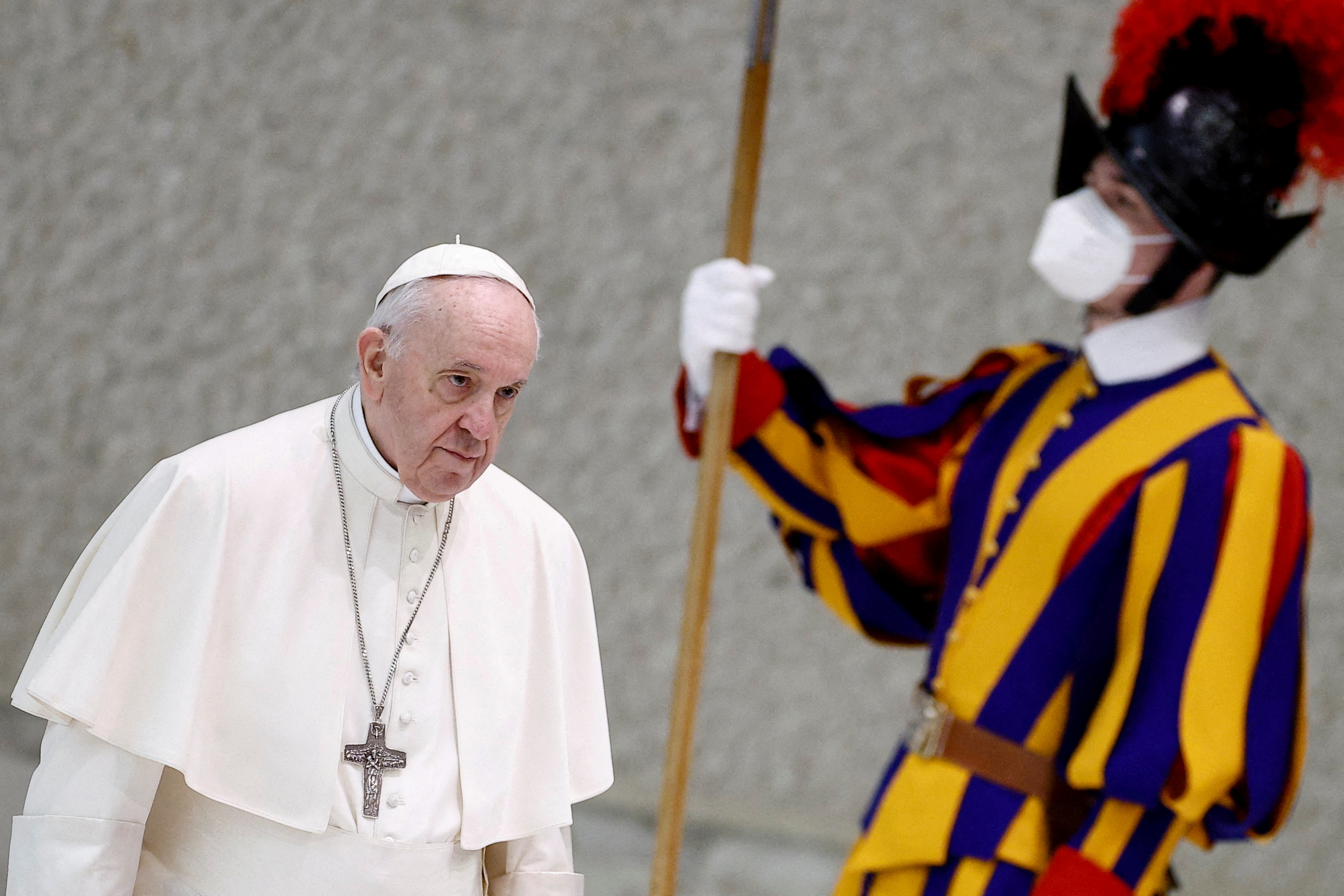
Sign up here.
Reporting by Philip Pullella; Editing by Raissa Kasolowsky and Rosalba O'Brien
Our Standards: The Thomson Reuters Trust Principles. New Tab , opens new tab
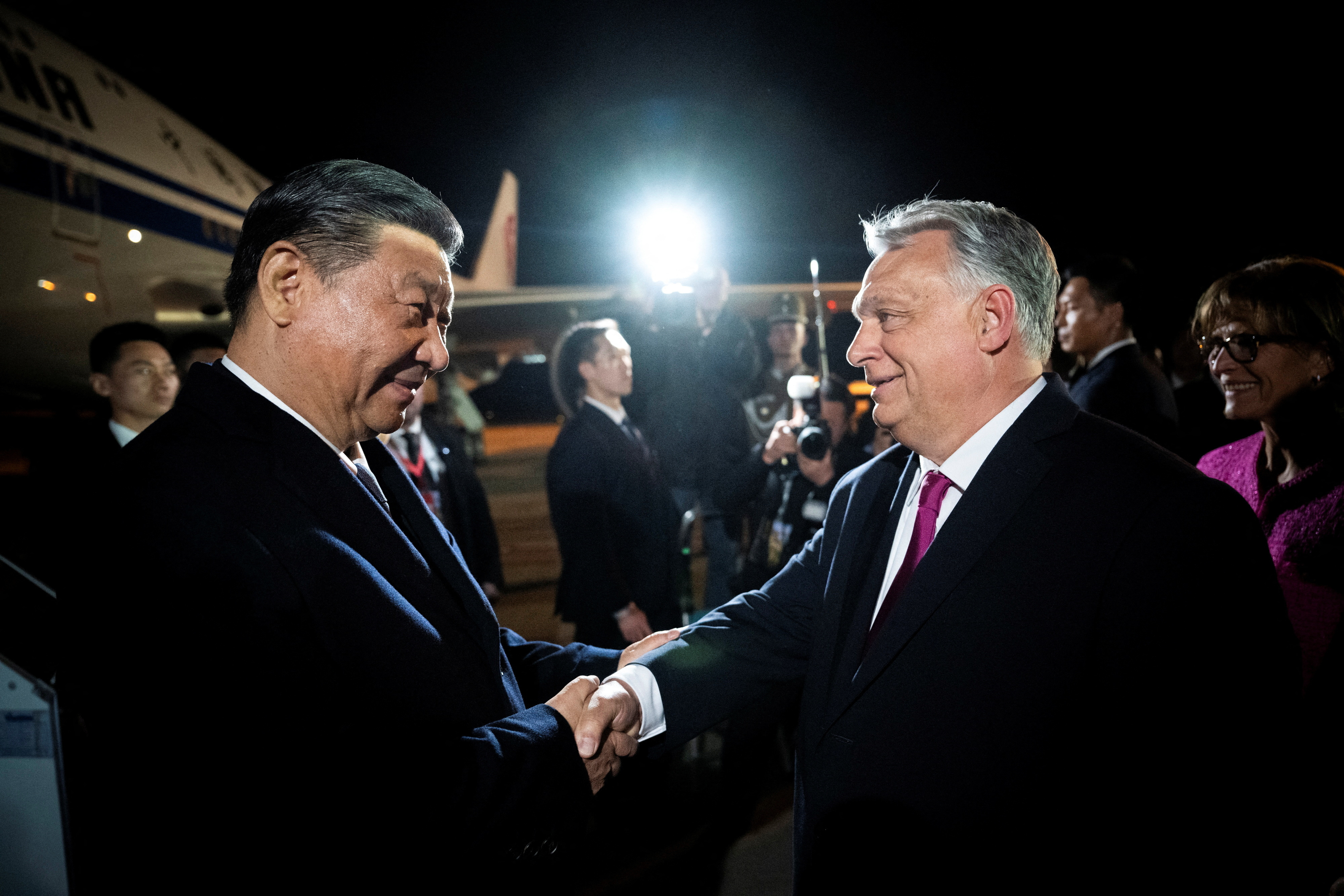
A U.S. warship sailed through the narrow Taiwan Strait on Wednesday, less than two weeks before Taiwan's new president takes office, prompting an angry denunciation from Beijing.

World Chevron
China's xi jinping in hungary to discuss ukraine, infrastructure.
Chinese President Xi Jinping is due to meet Hungarian Prime Minister Viktor Orban on Thursday, with the war in Ukraine and infrastructure projects high on the agenda, as he makes his third stop on his first European tour in five years.
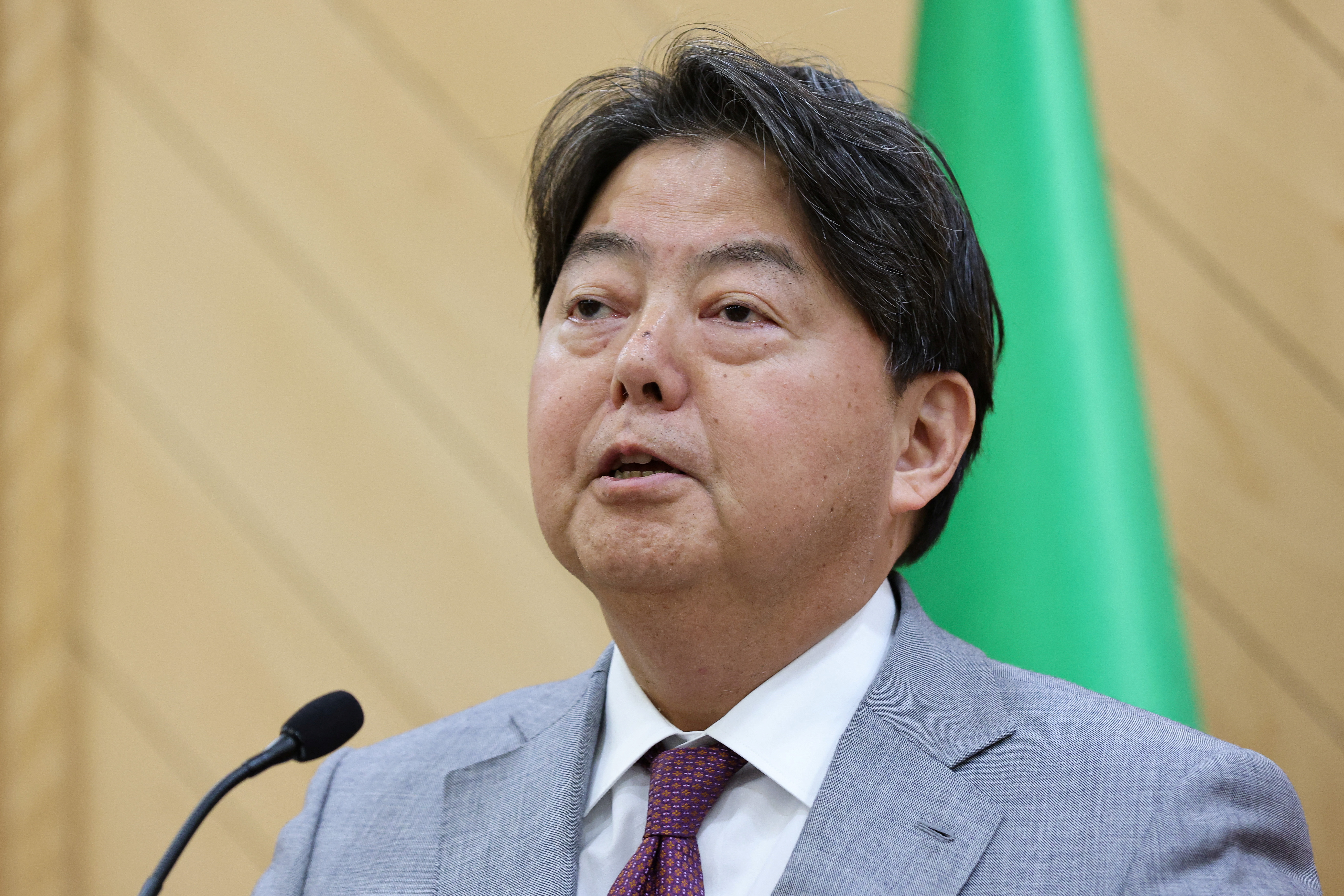
A Ukrainian drone attack sparked a fire and damaged several storage tanks at a fuel depot in Russia's Krasnodar region, the region's crisis administration said on Thursday.
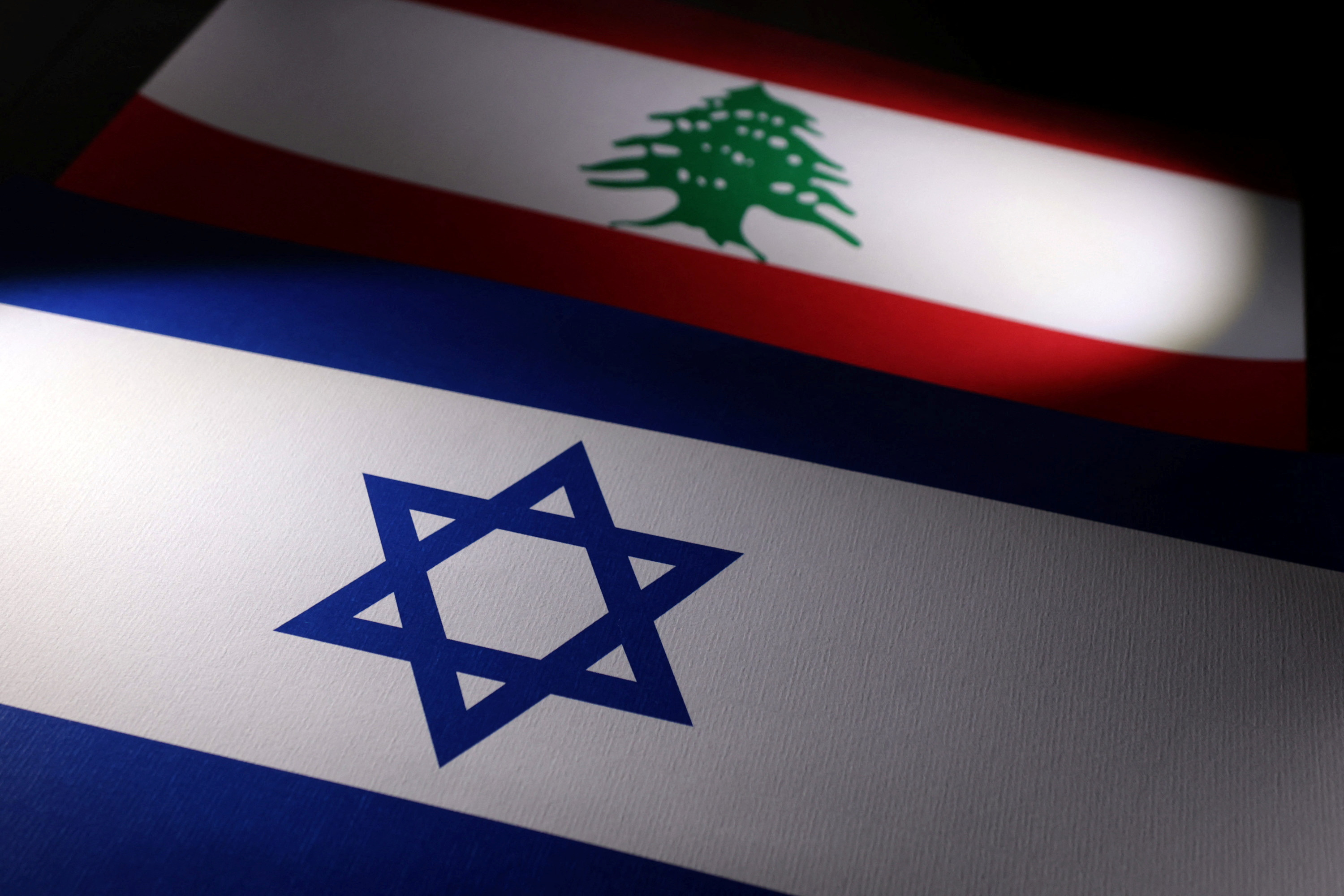
Marine conservationists and government scientists are seeking clues to the mystery of how a 44-foot whale carcass ended up on the bow of a cruise liner, where it was discovered as the ship approached New York City's Port of Brooklyn over the weekend.
Watch CBS News
Pope Francis visits Venice in first trip outside of Rome in seven months
April 28, 2024 / 3:18 PM EDT / CBS/AP
Pope Francis made his first trip out of Rome in seven months on Sunday with a visit to Venice that included an art exhibition, a stop at a prison and a Mass.
Venice has always been a place of contrasts, of breathtaking beauty and devastating fragility, where history, religion, art and nature have collided over the centuries to produce an otherworldly gem of a city. But even for a place that prides itself on its culture of unusual encounters, Francis' visit on Sunday stood out.
Francis traveled to the lagoon city to visit the Holy See's pavilion at the Biennale contemporary art show and meet with the people who created it. But because the Vatican decided to mount its exhibit in Venice's women's prison, and invited inmates to collaborate with the artists, the whole project assumed a far more complex meaning, touching on Francis' belief in the power of art to uplift and unite, and of the need to give hope and solidarity to society's most marginalized.

His trip began at the courtyard of the Giudecca prison, where he met with women inmates one by one.
"Paradoxically, a stay in prison can mark the beginning of something new, through the rediscovery of the unsuspected beauty in us and in others, as symbolized by the artistic event you are hosting and the project to which you actively contribute," Francis told them.
The 87-year-old pontiff then met with Biennale artists in the prison chapel, decorated with an installation by Brazilian visual artist Sonia Gomes of objects dangling from the ceiling, meant to draw the viewer's gaze upward.
The Vatican exhibit has turned the Giudecca prison, a former convent for reformed prostitutes, into one of the must-see attractions of this year's Biennale, even though to see it visitors must reserve in advance and go through a security check. It has become an unusual art world darling that greets visitors at the entrance with Maurizio Cattelan's wall mural of two giant filthy feet , a work that recalls Caravaggio's dirty feet or the feet that Francis washes each year in a Holy Thursday ritual that he routinely performs on prisoners.
The exhibit also includes a short film starring the inmates and Zoe Saldana, and prints in the prison coffee shop by onetime Catholic nun and American social activist Corita Kent.

Francis' dizzying morning visit, which ended with Mass in St. Mark's Square, represented an increasingly rare outing for the 87-year-old pontiff, who has been hobbled by health and mobility problems that have ruled out any foreign trips so far this year.
"Venice, which has always been a place of encounter and cultural exchange, is called to be a sign of beauty available to all," Francis said. "Starting with the least, a sign of fraternity and care for our common home."

During an encounter with young people at the iconic Santa Maria della Salute basilica, Francis acknowledged the miracle that is Venice, admiring its "enchanting beauty" and tradition as a place of East-West encounter, but warning that it is increasingly vulnerable to climate change and depopulation.
"Venice is at one with the waters upon which it sits," Francis said. "Without the care and safeguarding of this natural environment, it might even cease to exist."
in the exhibit as tour guides and as protagonists in some of the artworks.
Ahead of his trip, Francis sat down with "CBS Evening News" anchor and managing editor Norah O'Donnell during an hourlong interview at the guest house where he lives in Rome.
During the interview, Francis pleaded for peace worldwide amid the ongoing wars in Ukraine and Gaza .
"Please. Countries at war, all of them, stop the war. Look to negotiate. Look for peace," said the pope, speaking through a translator.
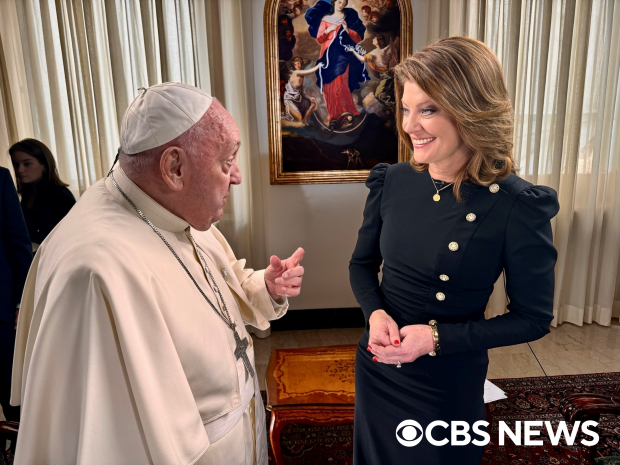
He also had a message for those who do not see a place for themselves in the Catholic Church anymore.
"I would say that there is always a place, always. If in this parish the priest doesn't seem welcoming, I understand, but go and look elsewhere, there is always a place," he said. "Do not run away from the Church. The Church is very big. It's more than a temple ... you shouldn't run away from her."
The pope's Venice trip was the first of four planned inside Italy in the next three months, Reuters reported. He is scheduled to visit Verona in May and Trieste in July, and is expected to attend the June summit of Group of Seven (G7) leaders in Bari.
In September, he is also set to embark on the longest foreign trip of his papacy, traveling to Indonesia, Papua New Guinea, Timor-Leste and Singapore.
_______________________________________________________________________________________________________________________
An extended version of O'Donnell's interview with Pope Francis will air on "60 Minutes" on Sunday, May 19 at 7 p.m. ET. On Monday, May 20, CBS will broadcast an hourlong primetime special dedicated to the papal interview at 10 p.m. ET on the CBS Television Network and streaming on Paramount+ . Additionally, CBS News and Stations will carry O'Donnell's interview across platforms.
- Pope Francis
- Catholic Church
More from CBS News
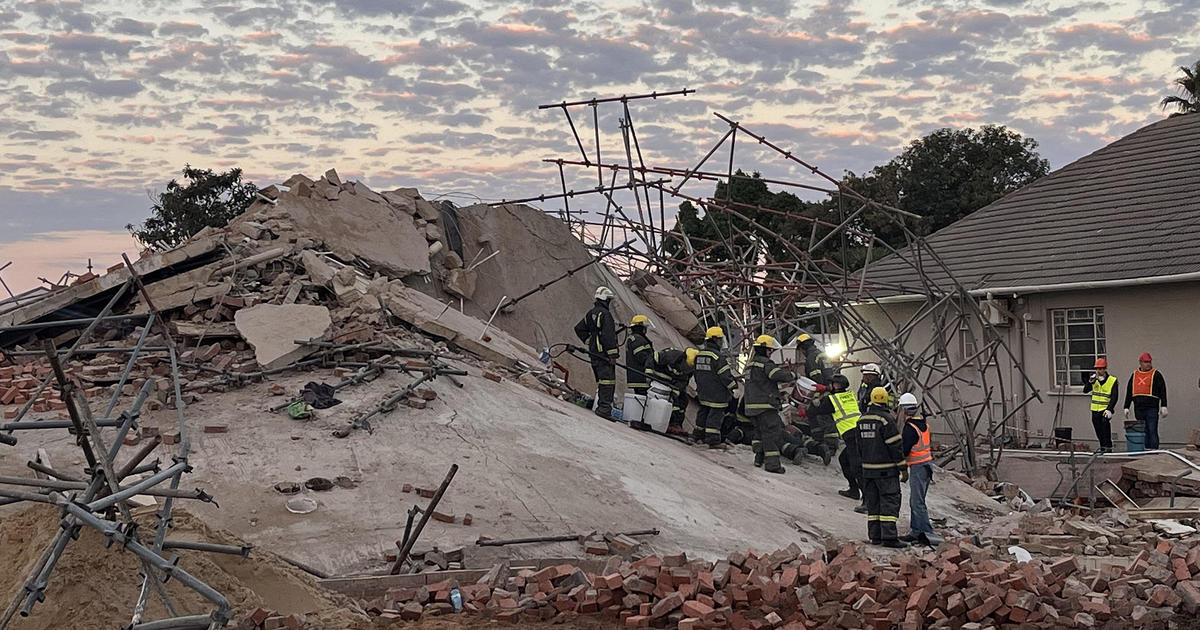
More than 40 still feared trapped under rubble after building collapse
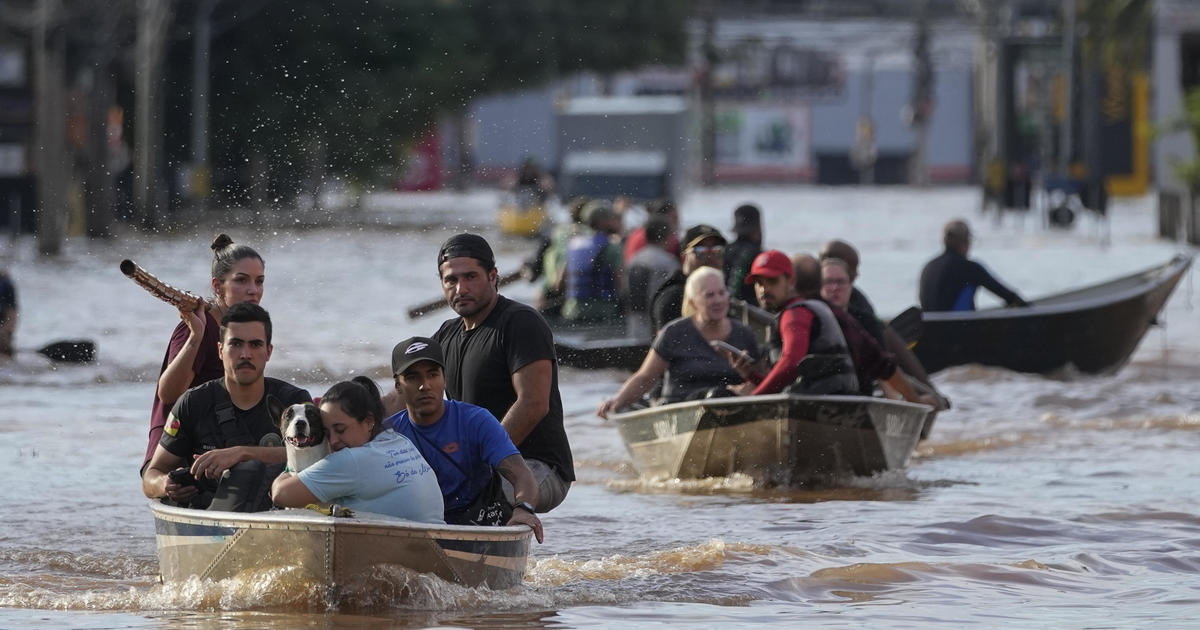
At least 100 dead and dozens still missing amid flooding in Brazil
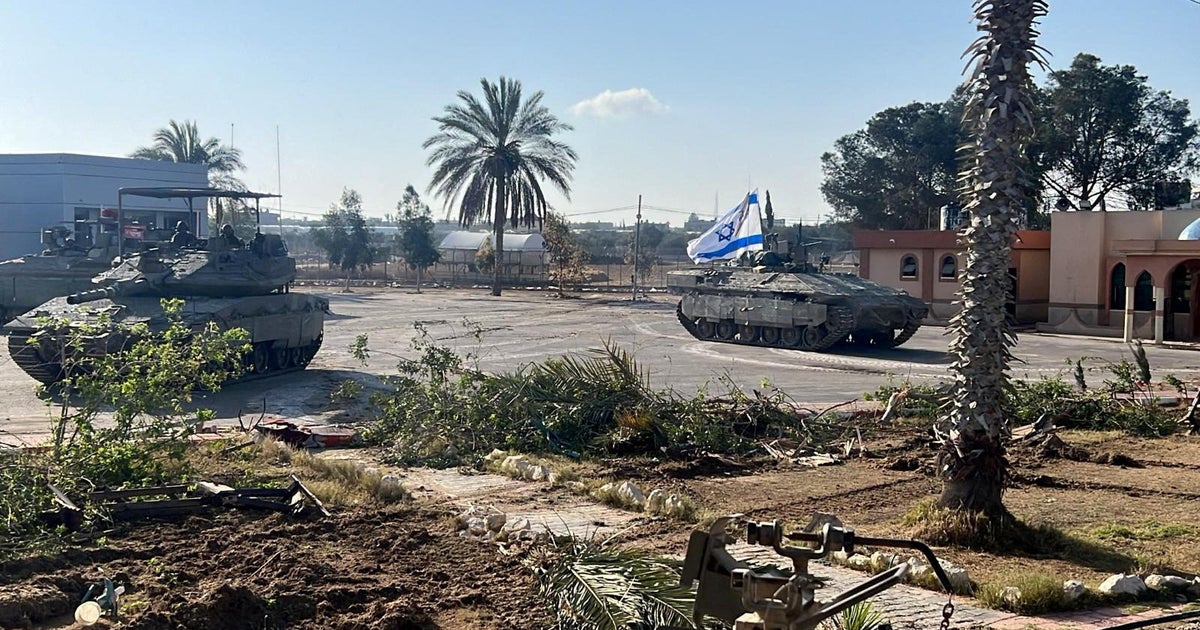
On Netanyahu's orders, Israeli troops seize Gaza side of Rafah border
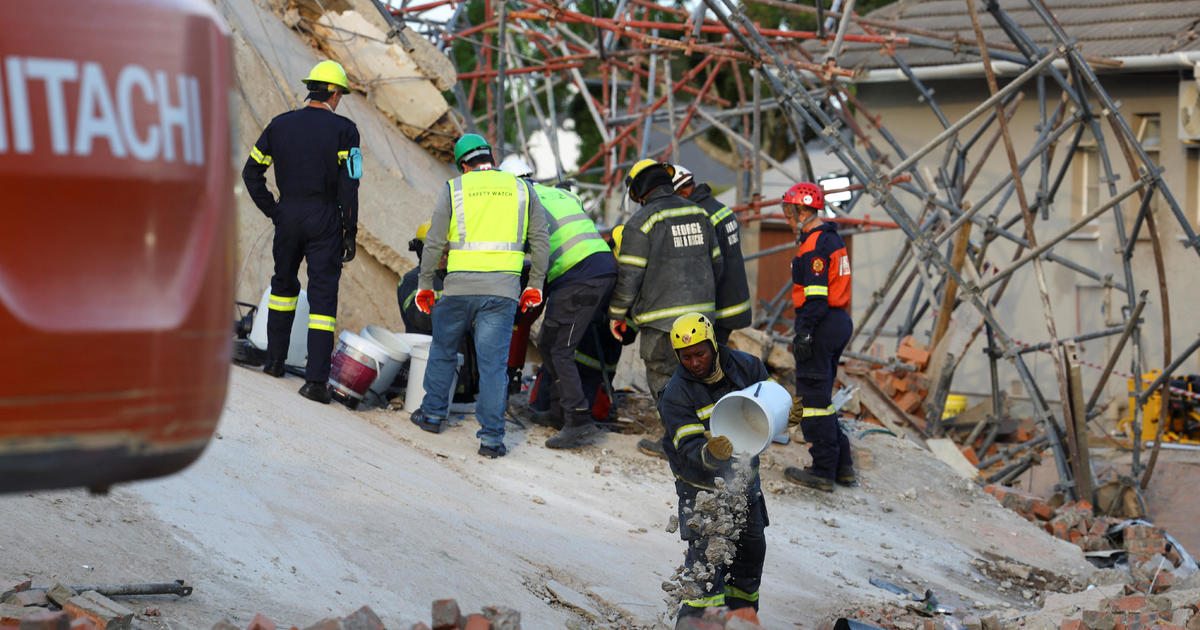
Crews race to save construction workers trapped by building collapse
Ukraine war latest: 'Undeclared Russian military intelligence officer' expelled from UK
The Home Office has expelled a Russian defence attaché as part of a series of measures against Moscow. James Cleverly said the attaché was an "undeclared military intelligence officer". Ask our military analysts or international correspondents a question in the box below.
Wednesday 8 May 2024 20:00, UK
- Home Office expels Russian diplomat who was 'undeclared military intelligence officer'
- Moscow 'developing nuclear power plant' for joint moon base with China
- Russia hits power facility and other energy infrastructure in massive overnight attack
- Dominic Waghorn: Russia may have crossed the line - but UK move to expel attache increases risk of dangerous escalation
- Ivor Bennett analysis: Painted as a modern-day Tsar, Putin seems more confident than ever
- Ed Conway : Russian oil still seeping into UK - the reasons why sanctions are not working
- Live reporting by Ollie Cooper
Ask a question or make a comment
Thanks for following our live coverage, we'll be back soon with more live updates.
Kosovo's foreign minister has said her country is convinced Russia must lose the war in Ukraine for conflict not to spread further in Europe.
Donika Gervalla-Schwarz said her young nation's support for Ukraine was unconditional - despite Kyiv not having recognised Kosovo's independence.
Ms Gervalla-Schwarzd her small Balkan nation, which declared its independence from Serbia in 2008, is repeatedly reminded of the aggressive intentions of both Serbia and its ally Russia.
"Ukraine hasn't recognised the Republic of Kosovo as a state, but we really believe that we know exactly what Ukraine is going through," she told The Associated Press in an interview.
"And we know that there is only one solution, not only for Ukraine, but for Europe," she said.
"It can only be Russia to lose the war and Ukraine to win this war. Otherwise, Europe should prepare for other conflicts in our continent."
The people of Kosovo were the targets of war crimes and other atrocities by Serbia's security forces in the 1990s, an experience that led Kosovo to seek independence.
"While Kosovo is a small state with very modest possibilities to help, we have tried to be very helpful with Ukraine and have not hesitated to show our unconditional support and sympathy to the people and to the state of Ukraine," Ms Gervalla-Schwarz said.
Lord Cameron has called the UK's measures on a Russian defence attache "an unequivocal message" to Moscow.
The foreign secretary was replying to James Cleverly's post on X in which he said the Home Office expelled a Russian defence attache as part of a series of measures against the country.
Other measures in the package include removing the diplomatic premises status from several Russian owned properties in the UK and capping the amount of time Russian diplomats can spend in the UK.
Budapest is once again raising eyebrows across the world's biggest military alliance as it pledges to defy a NATO initiative.
The alliance's long-term plan to support Ukraine militarily was agreed in April, but was dubbed a "crazy mission" by Hungary's foreign minister today.
Under the plans, NATO would take over some coordination work from a US-led coalition known as the Ramstein group.
Discussing the plans today, Peter Szijjarto said: "Hungary will stay out of NATO's crazy mission despite all the pressure."
Relations between Budapest and NATO have soured because of Hungary's foot-dragging over the ratification of Sweden's NATO accession - finally passed by Budapest in March - and also over nationalist Prime Minister Viktor Orban's close ties with Moscow.
The Russian embassy in London has said there will be "an appropriate response" after Britain expelled a Russian defence attache.
The embassy said the restrictions that had been imposed were done under a "groundless and ridiculous pretext", according to Russian state news agency TASS.
It comes after Russian foreign ministry spokeswoman Maria Zakharova was reported as telling journalists that the Kremlin will respond appropriately following the expulsion.
Dominic Waghorn, international affairs editor
It's always assumed defence attaches play some kind of role gatherling intelligence and that is generally tolerated by their host countries.
They could be gathering data about weapons production for instance or ship building but there is a line they are expected not to cross.
The assumption here is that the Russians have broken the rules of the game.
But the British government will have thought long and hard before expelling the Russian. It doesn't come without cost.
In their day jobs defence attaches play a crucial role in liaising with their hosts. That can be very important in terms of avoiding misunderstandings that could lead to unnecessary and dangerous escalation.
Losing Russia’s defence attache in London deprives the UK of one more line of liaison at a time when clear understanding and clarification could be essential to avoiding deepening conflict.
That is not ideal at a time of war.
What is not clear is how much these moves are connected specifically to the conduct of the Russians involved or should they actually be seen more as another chapter in the diplomatic war underway between Russia and the UK.
The UK has undoubtedly weakened Russia's ability to spy in the UK and gather intelligence but these measures will also affect Britain's ability to predict and avoid potential escalation.
That will be made even worse if Russia, as may be expected, responds with like-for-like retaliation
Seven people have been injured by Russian shelling in eastern Kharkiv, according to the region's governor.
Oleg Synegubov said among those wounded was an eight-year-old girl and three boys, two aged 14 and the other 15.
"Two [of the] boys are in serious condition, [the other] boy and [the] girl are in average condition," he said.
One 55-year-old civilian of unspecified gender was also hospitalised.
Two women had minor injuries.
Defence Secretary Grant Shapps has offered his thoughts on the expulsion of a Russian defence attache the government has accused of being an undeclared military intelligence officer.
"Today we've expelled Russia's defence attache who has been working as an intelligence officer for Putin in the UK," he said on X.
"We will not tolerate Putin’s efforts to undermine our nation and democracy and will continue to stand up for freedom here and in Ukraine."
Each week we ask readers for their questions on the war for our military analysts and international correspondents.
This week, military analyst Sean Bell answers:
Why is Ukraine focusing its drone attacks on oil refineries rather than near the front lines? Mike
Thanks, Mike, for this topical question.
Although the ultimate metric of success in this brutal war is territory gained, to achieve that outcome requires a more complex strategy than simply focusing on the frontline battle.
One of the reasons that the Royal Air Force was formed as an independent service was the recognition that greater impact could often be achieved by targeting enemy logistics and supply lines behind the frontline, rather than simply focusing effort on the "close battle".
Military action is ultimately driven by political will to achieve a desired end-state; the military simply creates the conditions in which a political outcome can be achieved.
At the tactical level of warfare, the focus is on the battles of individual soldiers and units prevailing against tactical targets.
However, at the other end of the spectrum, senior military strategists seek to attack the enemy's "centre of gravity" - the one thing that the enemy cannot afford to lose and thus must protect at all costs.
'Fight smarter'
In the Second World War, much of the Allied bombing effort was targeting German industrial capacity, as without the ability to regenerate military equipment and ammunition, the war would not be sustainable.
Ukraine has a smaller army than Russia, and so any conventional attritional battle would favour Russia.
Therefore, Ukraine has to try to "fight smarter" and erode Russia's will - or capacity - to fight.
A war on this scale consumes huge quantities of resource, which has to be funded in some way.
Russia's oil exports fund Vladimir Putin's military campaign and also pay for imports of vital munitions from North Korea and Iran.
By targeting the enemy's oil facilities Ukraine will be aiming to reduce Russia's export capacity, which in turn impacts Russia's ability to fund the war.
That might not help the close battle, but could undermine Russia's commitment to a longer-duration conflict.
And, although drones are an "irritation" to the frontline forces, the quantity of explosives they are able to deliver is relatively small, so their effect is relatively limited.
However, an oil facility is very vulnerable to a relatively small-scale explosion, which can spread swiftly to destroy a crucial part of Russia's critical national infrastructure - more bang per buck.
So, although Ukraine desperately needs to stop Russia from breaking through its frontlines, we can expect to see Ukraine continue to target energy infrastructure as part of a broader strategy in its war with Russia.
We now have more details regarding the freshly expelled Russian defence attache we reported on in our 1.10pm post.
The attache accused by the Home Office of being an undeclared military intelligence officer spying for the Kremlin is Colonel Maxim Elovik.
Be the first to get Breaking News
Install the Sky News app for free

- International edition
- Australia edition
- Europe edition
Russia-Ukraine war: Belarus to hold tactical nuclear drills; Kyiv detains two Ukrainian officials over plot to kill Zelenskiy – as it happened
Ally to take part in exercises alongside Russia; Ukraine says it has exposed network of agents run by Moscow
- 2d ago Closing summary
- 2d ago Belarus holding tactical nuclear drills together with Russia, Tass reports
- 2d ago Kyiv detains two Ukrainian security officials over plot to assassinate Volodymyr Zelenskiy
- 2d ago Ukraine says it has foiled Russian plot to assassinate Zelenskiy
- 2d ago Russia and Ukraine accuse each other of using chemical weapons on battlefield
- 2d ago Putin: Russia open to developing relations with West on equal terms
- 2d ago Vladimir Putin arrives at inauguration ceremony
- 2d ago EU plans to sanction Ukrainian media oligarch accused of treason by Kyiv

Belarus holding tactical nuclear drills together with Russia, Tass reports
Reuters is reporting that Belarus will be holding tactical nuclear drills together with Russia , according to the state news agency TASS.
Belarus has begun checks on the readiness of its army to deploy tactical nuclear weapons, simultaneously with a drill being carried out by Russia.
Russia said on Monday it would practise the deployment of tactical nuclear weapons as part of a military exercise after what Moscow said were threats from France, Britain and the United States.
Belarusian leader Alexander Lukashenko said in April that "several dozen" Russian tactical nuclear weapons had been deployed in Belarus under an agreement announced last year by himself and President Vladimir Putin .
Closing summary
This blog is closing for the day. Below is a roundup of today’s stories:
Ukraine announced it had detained two Ukrainian security officials who they claim were involved in a plot coordinated by Russia to assassinate senior Ukrainian officials, including President Volodymyr Zelenskiy. The Security Service of Ukraine said in a statement that it had exposed a network of agents run by Russia’s Federal Security Service whose aim was to assassinate Zelenskiy and other senior Ukrainian political and military officials.
Belarus has begun checks on the readiness of its army to deploy tactical nuclear weapons, simultaneously with a drill being carried out by Russia. Russia said on Monday it would practise the deployment of tactical nuclear weapons as part of a military exercise after what Moscow said were threats from France, Britain and the US.
During his inauguration, where he sworn in for another term as Russian President, Vladimir Putin did not rule out dialogue with the West but said it needed to be on equal terms. In a short speech, Putin also said that Russia was open to developing relations with other countries he described as “the world’s majority”.
Russia and Ukraine have accused each other at the global chemical weapons watchdog in The Hague of using banned toxins on the battlefield, the organisation said on Tuesday. The Organisation for the Prohibition of Chemical Weapons (OPCW) said that the accusations were “insufficiently substantiated” but added that “the situation remains volatile and extremely concerning regarding the possible re-emergence of use of toxic chemicals as weapons.”
The EU plans to sanction Viktor Medvedchuk, a former Ukrainian politician and businessman accused of high treason by Kyiv, who was released to Russia in a prisoner exchange in 2022. In addition, the bloc is seeking to ban four more Russian media outlets from the airwaves and internet in its latest round of measures against Russia.
Reuters reports that Britain, the US and Australia have sanctioned a senior Russian leader of the cybercrime gang LockBit, the British government said on Tuesday.
Dmitry Khoroshev will face asset freezes and travel bans after being identified as one of the leaders of LockBit, the ransomware group which has extorted over $1bn from victims globally, Britain said.
“In sanctioning one of the leaders of LockBit we are taking direct action against those who continue to threaten global security, while simultaneously exposing the malicious cybercriminal activity emanating from Russia,” the British minister for the Indo-Pacific, Anne-Marie Trevelyan, said in a statement.
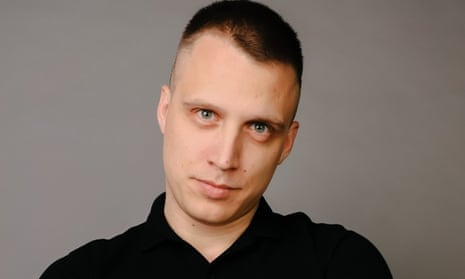
Here are some clips from Vladimir Putin’s inauguration ceremony earlier on Tuesday.
In a speech made after he swore an oath on the constitution, Putin called on the west to approach dialogue with Russia as “an equal”. He said: ‘The dialogue, including on issues of security and strategic stability, is possible, but not from a position of force’.
“Together with our partners in Eurasian integration, with other sovereign centres of development, we will continue to work on forming a multipolar world order, an equal and indivisible security system.”
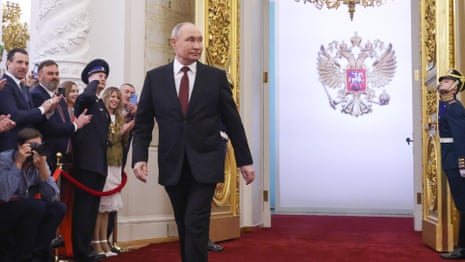
Reuters reports that Polish prime minister Donald Tusk said that in order for Europe to avoid conflicts and be safe it must increase its defence capabilities, and he repeated his call for the construction of a common European air defence system.
In the face of the conflict in Ukraine , Poland is strengthening its defence capabilities, allocating over 4% of its Gross Domestic Product.
Speaking at the European Economic Congress, a meeting of politicians and business figures in Katowice, Tusk said EU countries should take joint action to increase spending on defence by at least 100 billion euros ($107 billion).
"Europe must be prepared in the next dozen or so months and the entire next five years for a situation in which no power in the world will dare raise a hand against it," he said.
"Big money will move the war away from Europe's borders for a long time, perhaps permanently."
A joint air defence "must become a European project that will be a financial effort to build a dome over Europe," he said. "We have many more initiatives and meetings than real actions to defend the European sky."
The President of the European Commission, Ursula von der Leyen, who attended the congress, also said Europe must spend more on defence, and declared that if she remains in office for another term she will propose new defence projects.
She promoted a previously announced proposal for the creation of a full-time EU defence commissioner, who would help support the European defence industry.
Russian deputy foreign minister Sergei Ryabkov said on Tuesday that Russia's moratorium on deployment of intermediate-range and shorter-range missiles is in question because of the "destructive" approach of the US, Reuters reports citing Russia's state news agency RIA.
Russia and the US occasionally exchange views on strategic stability, Ryabkov said, adding that US ambassador Lynne Tracy had left Russia for a certain period of time, TASS news agency reported.
Kyiv detains two Ukrainian security officials over plot to assassinate Volodymyr Zelenskiy
Here’s more from AFP on the alleged plot to assassinate Volodymyr Zelenskiy:
Ukraine announced Tuesday it had detained two Ukrainian security officials involved in a plot coordinated by Russia to assassinate senior Ukrainian officials, including President Volodymyr Zelenskiy. Kyiv says that the Ukrainian leader has been targeted by Russia on multiple occasions, including at the beginning of the Russian invasion in February 2022. The Security Service of Ukraine said in a statement that it had exposed a network of agents run by Russia’s Federal Security Service whose aim was to assassinate Zelenskiy and other senior Ukrainian political and military officials. “The network, whose activities were supervised by the FSB from Moscow, included two colonels of the State Security Department who were leaking classified information to Russia,” the SBU said. It said that Russia had worked to identify individuals close to Zelenskiy’s security detail who could take the Ukrainian leader hostage and kill him. Polish and Ukrainian prosecutors announced last month they had detained a man suspected of aiding a Russian assassination plot on Zelenskiy. And the SBU said last August that a woman had been arrested for over a plot of kill the Ukrainian leader by trying to uncover details of his movements outside Kyiv.
I’ve corrected a post at 12.27 which erroneously stated that France had summoned Russia’s ambassador, following updated information from the Reuters newswire.
Reuters updated its despatch with the following:
France said on Tuesday that its ambassador to Russia had been summoned on 6 May and accused Moscow’s diplomatic service of manipulating information and intimidation.
Russia’s foreign ministry said on Monday it had summoned France’s ambassador in Moscow but did not give a reason.
“France notes that diplomatic channels are once again being abused to manipulate information and intimidate,” France’s foreign ministry said, adding “the Russian Ministry has once again engaged in a reversal of responsibilities” and “is pursuing its aggressive maneuvers aimed at destabilizing European countries, notably through cyberattacks and hybrid actions”.
France said on Tuesday that its ambassador to Russia had been summoned on May 6 and accused Moscow’s diplomatic service of manipulating information and intimidation.
Ukraine says it has foiled Russian plot to assassinate Zelenskiy
Ukraine’s SBU security service claims it has caught a network of Russian agents plotting to assassinate Volodymyr Zelenskiy and other government officials, Reuters reports.
- Ukraine war live
- Vladimir Putin
Most viewed

IMAGES
COMMENTS
Again the Pope looked to Moscow for the possibility of working together with Patriarch Kirill of the Russian Orthodox Church. He cited the 40-minute conversation via Zoom on 15 March last and the "justifications" for the war cited by Kirill, and returned to the missed appointment in June in Jerusalem. "I listened," said Pope Francis in the ...
Aug. 31, 2023. Pope Francis has long expressed a desire to visit Russia and China in hopes of healing the church's historical rifts and ensuring the faith's future in the populous East. On ...
Russia's new ambassador to the Vatican is meeting with Pope Francis for a protocol visit to present his diplomatic credentials. ... Pope meets with new Russian ambassador as second Moscow mission planned for his Ukraine peace envoy. FILE - Cardinal Matteo Zuppi, head of the CEI (Italian Conference of Bishops), welcomes parishioners after ...
Published 4:04 AM PDT, June 27, 2023. ROME (AP) — Pope Francis' peace envoy arrived in Moscow on Tuesday in hopes of helping find "a solution to the tragic current situation" of the war in Ukraine, weeks after making a preliminary visit to Kyiv, the Vatican said. The mission by Cardinal Matteo Zuppi, a veteran of the Catholic Church's ...
Andrew Medichini/AP. Pope Francis' peace envoy will travel to Moscow on Wednesday and Thursday this week, according to a statement from the Vatican Press Office. "Cardinal Matteo Maria Zuppi ...
VATICAN CITY (AP) — Russia's new ambassador to the Vatican met Monday with Pope Francis for a protocol visit, as signs emerged that the Vatican's Ukraine peace envoy could soon be ...
An Italian Cardinal tasked by Pope Francis with trying to help end the war in Ukraine will visit Moscow this week as a follow up to his trip to Kyiv, the Vatican said on Tuesday.
Pope Francis welcomed Russia's new ambassador to the Vatican on Monday and the envoy said the pontiff told him he was determined to forge ahead with his peace and humanitarian initiatives for Ukraine.
FILE - Pope Francis meets Russian President Vladimir Putin on the occasion of their private audience at the Vatican on June 10, 2015. Pope Francis went to the Russian Embassy on Friday, Feb. 25, 2022 to personally "express his concern about the war," the Vatican said, in an extraordinary, hands-on papal gesture that has no recent precedent.
Pope Francis on Wednesday spoke to a top member of the Russian Orthodox Church (ROC) days after the pontiff made an intriguing but puzzling comment about the Vatican being involved in a mission to ...
Pope Francis first revealed that a mission aimed at stopping the war between Russia and Ukraine "is underway" on April 30. In the following days, spokespersons for both Presidents Vladimir ...
News; Nation/World; Pope Francis ready to visit Ukraine and Russia March 11, 2023 Updated Sat., March 11, 2023 at 9:07 p.m. In this photograph provided by Vatican Media, Pope Francis meets ...
3 May 2022. Pope Francis has said he offered to travel to Moscow to meet Russian President Vladimir Putin in an effort to stop the war in Ukraine but has yet to hear back. The pontifex made the ...
The visit came as a surprise as it did not follow typical protocol. Pope Francis attends his weekly general audience at the Paul VI hall, Feb, 23, 2022 in the Vatican. The Vatican press office ...
Hungary, Russia, Ukraine, Vatican Pope Francis keen to meet Ukraine war negotiators during Budapest visit. The pontiff, who has been looking to play a role as mediator in the Ukraine conflict, has lowered his sights and decided to travel to Hungary in late April.
VATICAN CITY (CNS) — Pope Francis has not accepted an invitation to travel to Moscow in June to meet with Vladimir Putin, the director of the Holy See press office said. A report on the website ...
May 3, 2023. ROME — A secret mission revealed days ago by Pope Francis to bring peace between Russia and Ukraine is so secret that Russia and Ukraine claim to know nothing about it. The Kremlin ...
Pope Francis went to the Russian embassy to the Vatican on Friday to relay his concern over Russia's invasion of Ukraine to Moscow's ambassador, in an unprecedented departure from diplomatic protocol.
Pope Francis leads the Angelus prayer from his window at the Vatican, on August 27, 2023. Ukrainian officials have criticized Pope Francis' recent address to Russian youth, calling his remarks ...
Pope Francis prays inside St. Mark's Basilica in Venice, Italy, Sunday, April 28, 2024. The Pontiff arrived for his first-ever visit to the lagoon town including the Vatican pavilion at the 60th ...
The Home Office has expelled a Russian defence attaché as part of a series of measures against Moscow. James Cleverly said the attaché was an "undeclared military intelligence officer". Ask our ...
Ally to take part in exercises alongside Russia; Ukraine says it has exposed network of agents run by Moscow Reuters is reporting that Belarus will be holding tactical nuclear drills together with ...